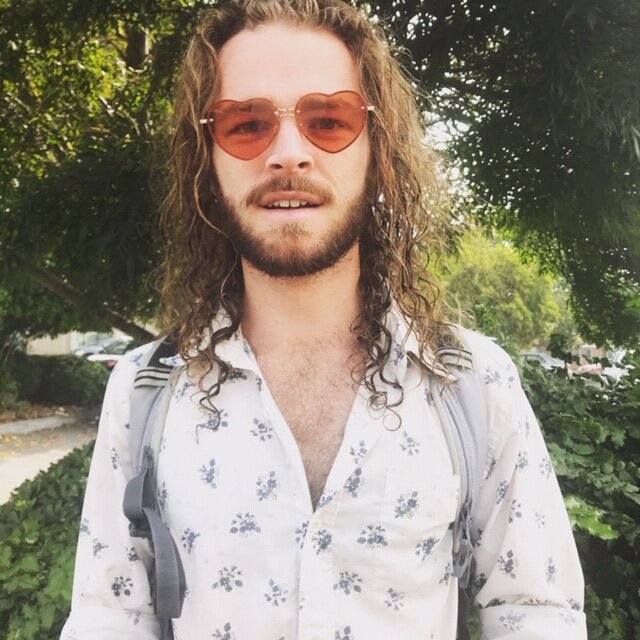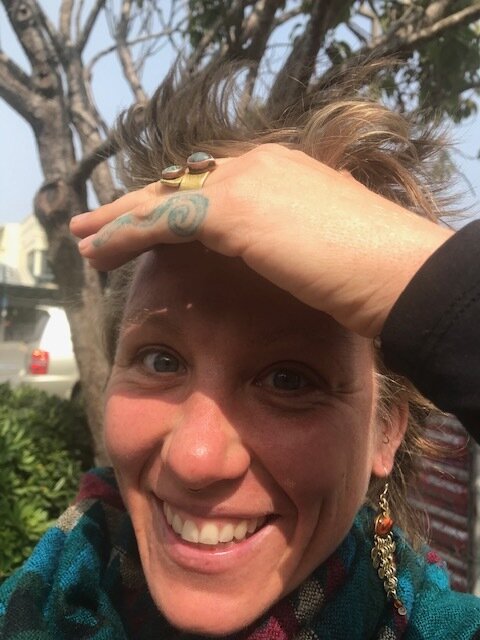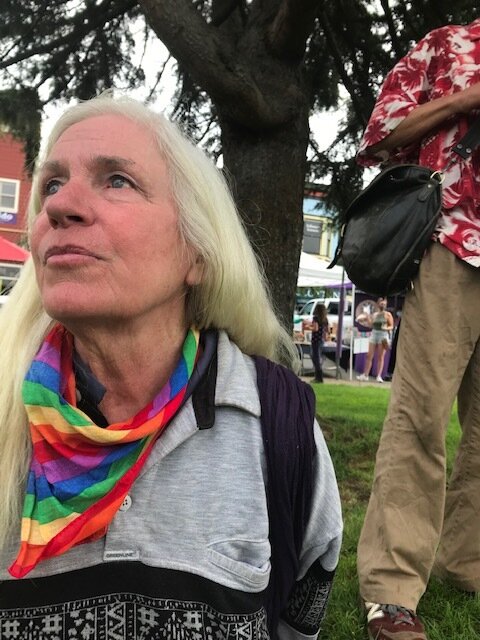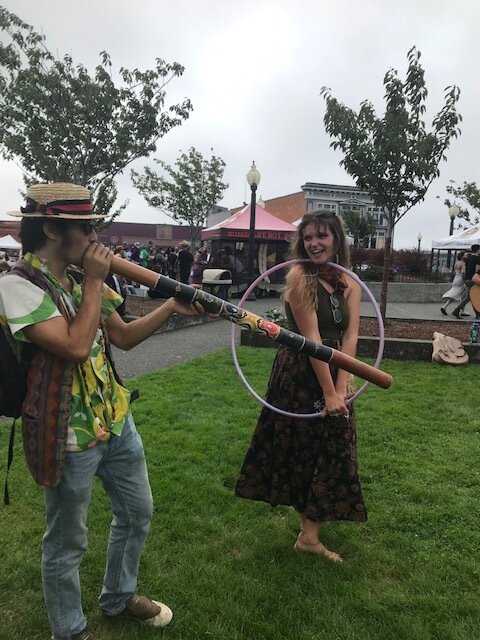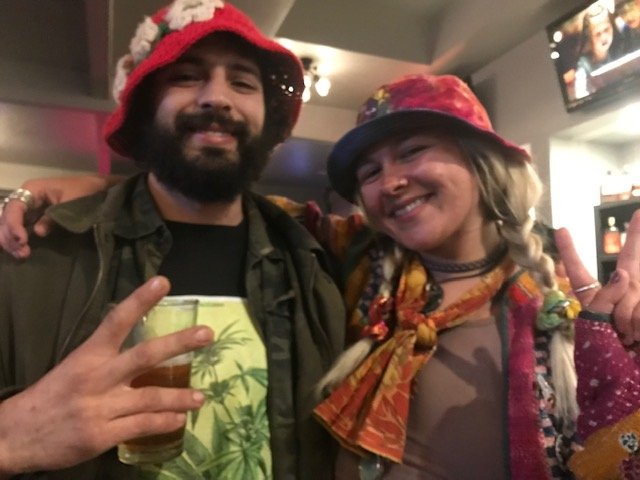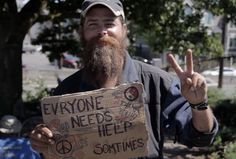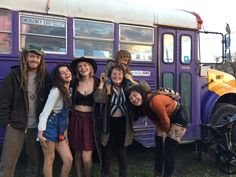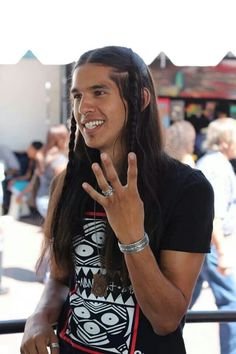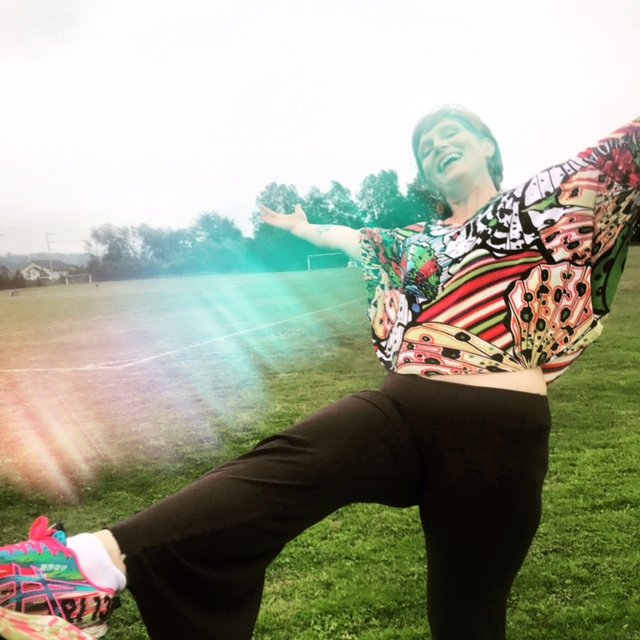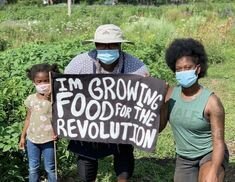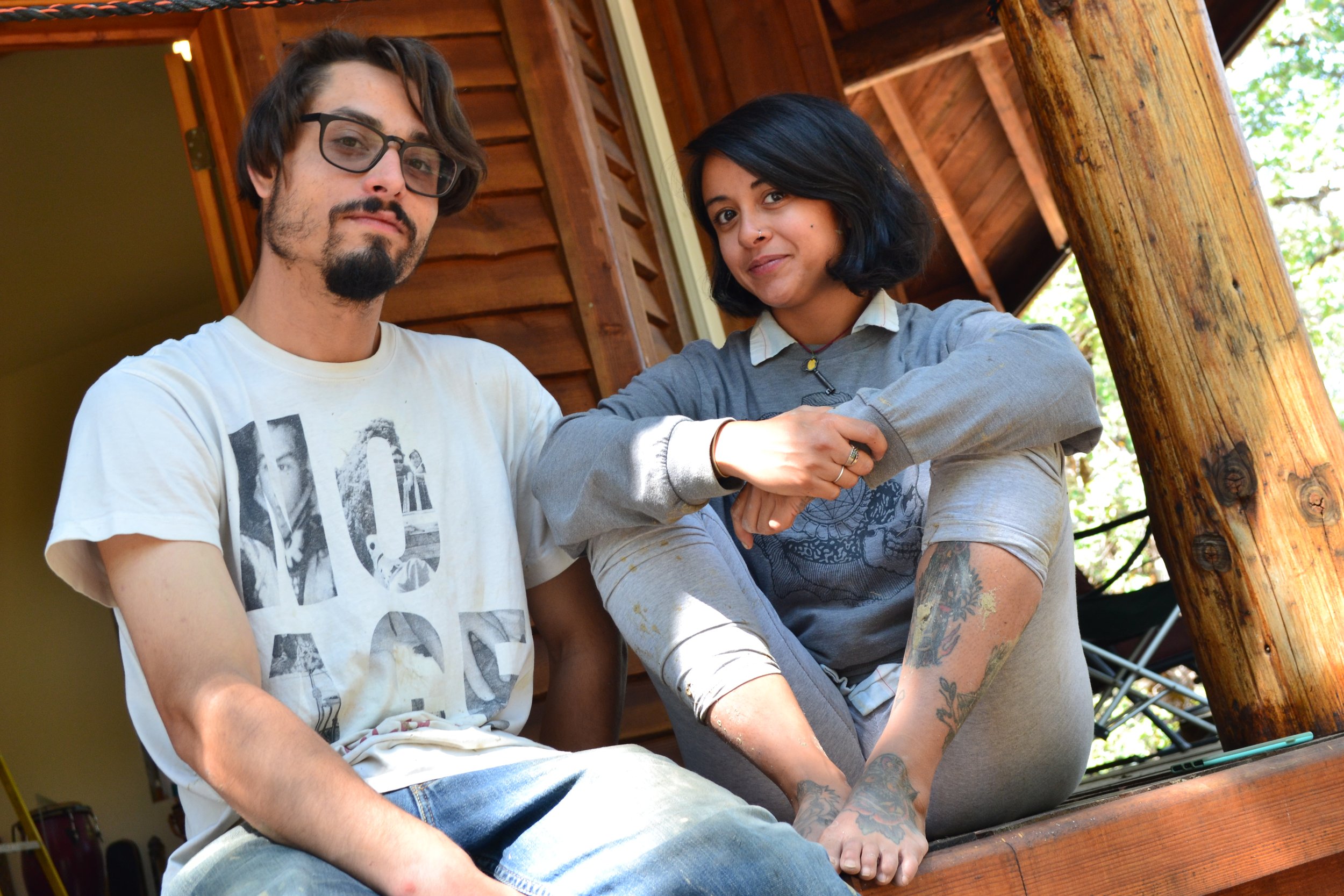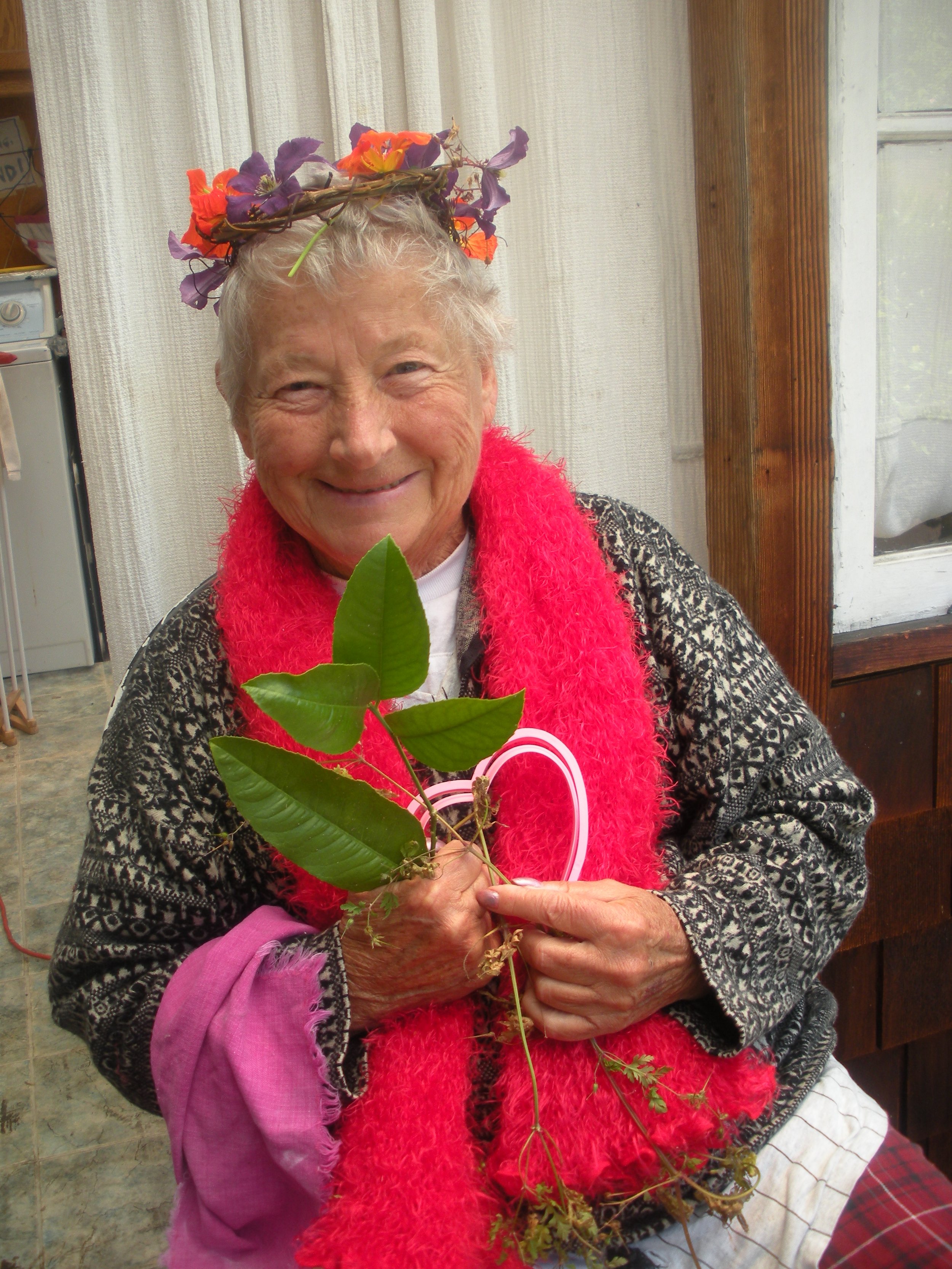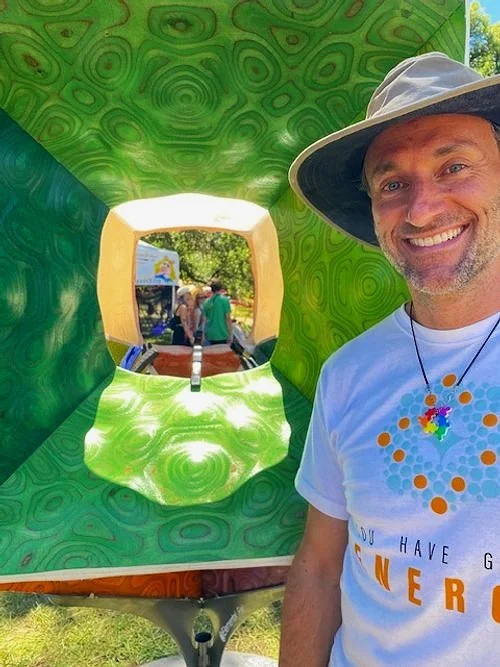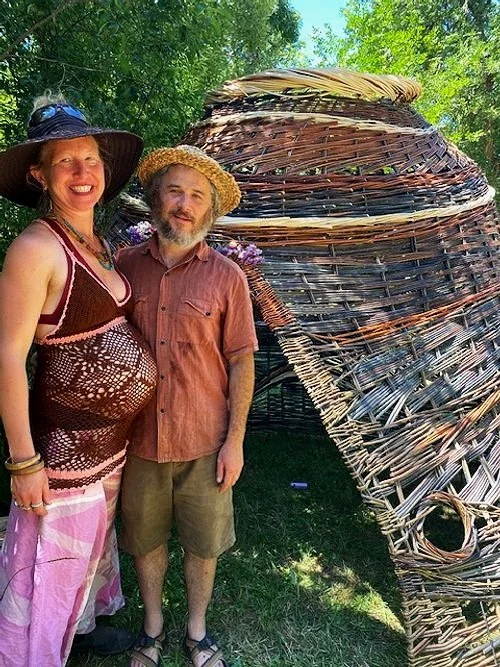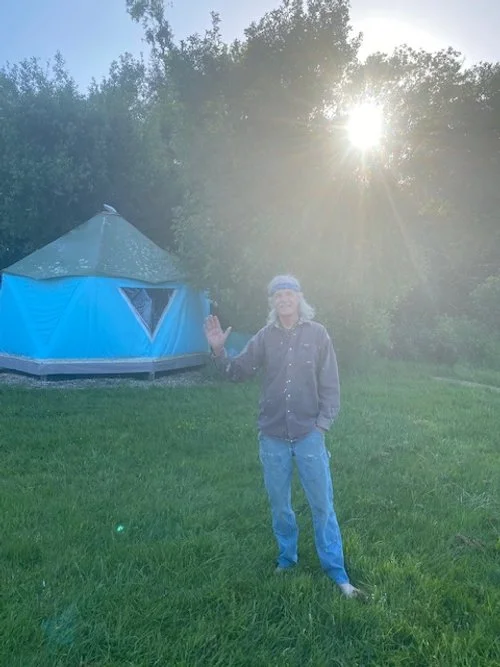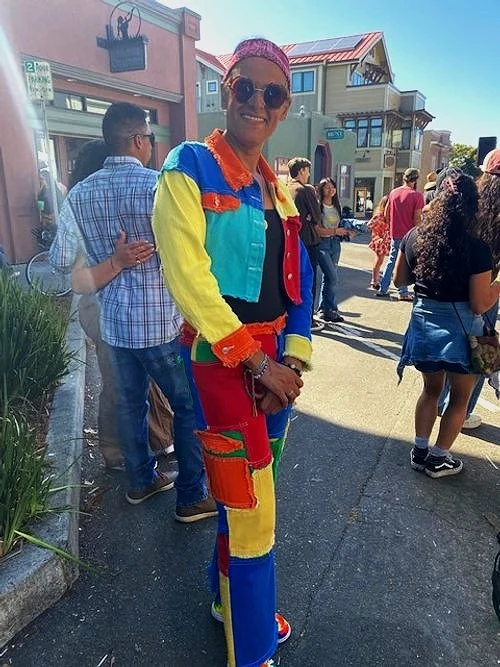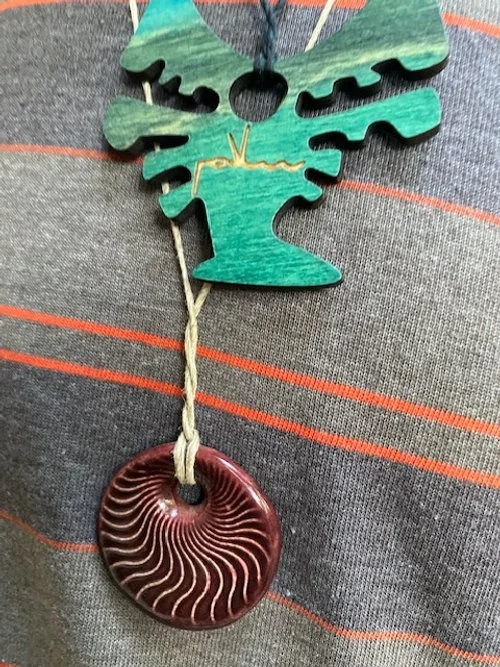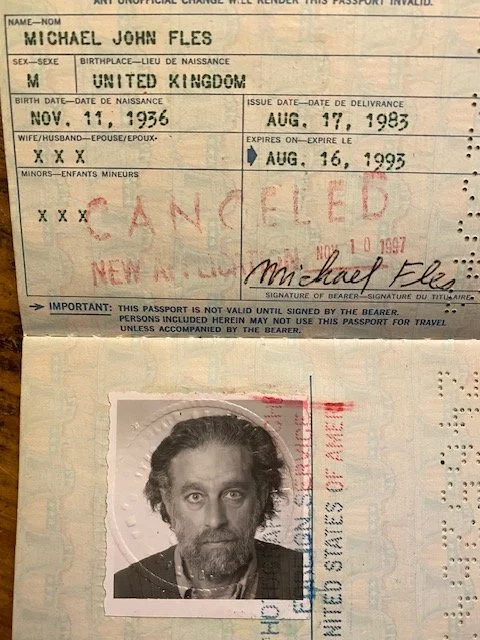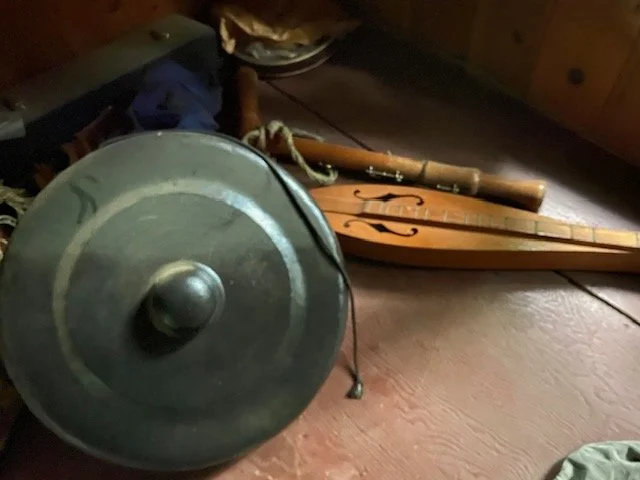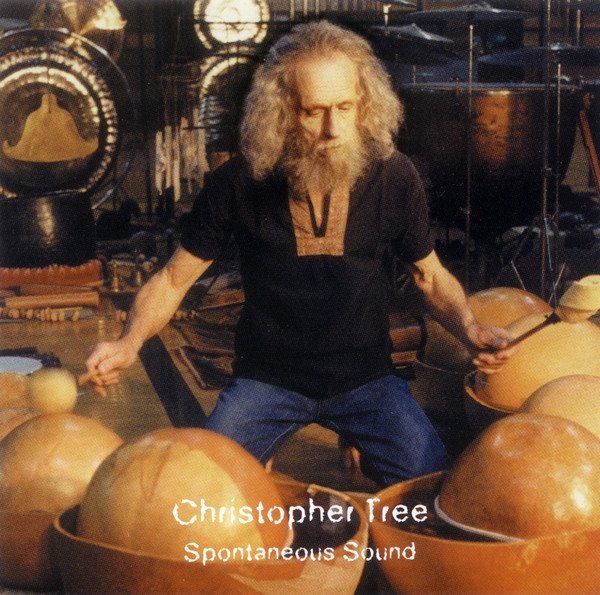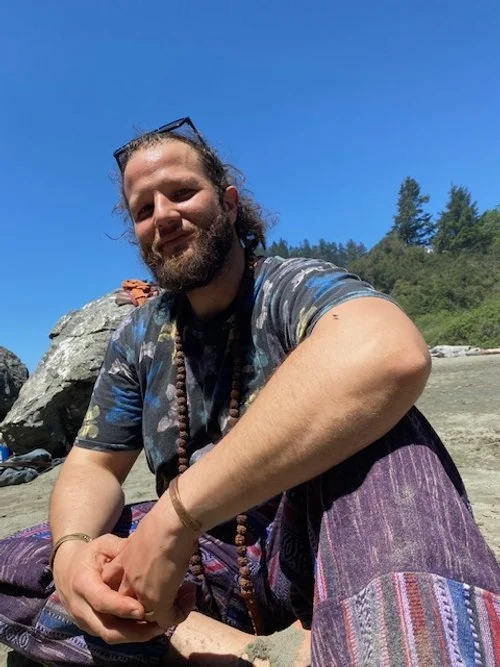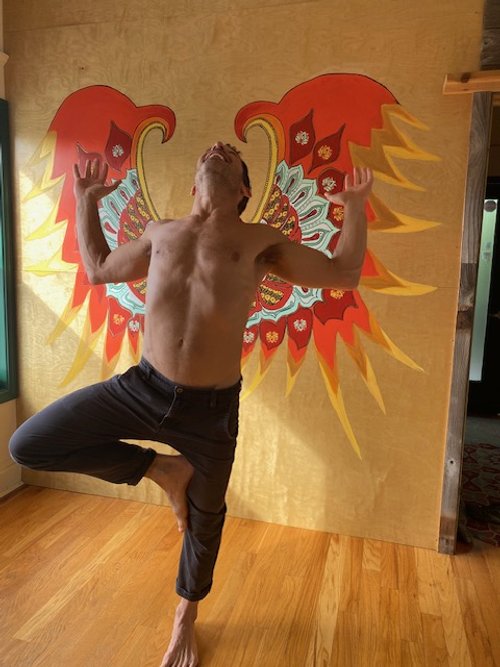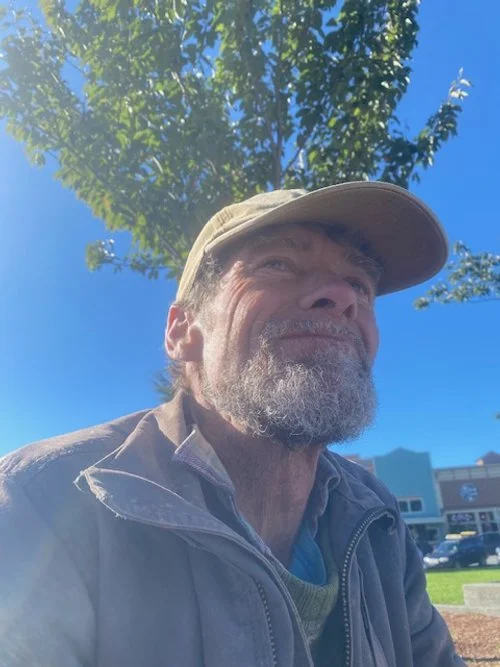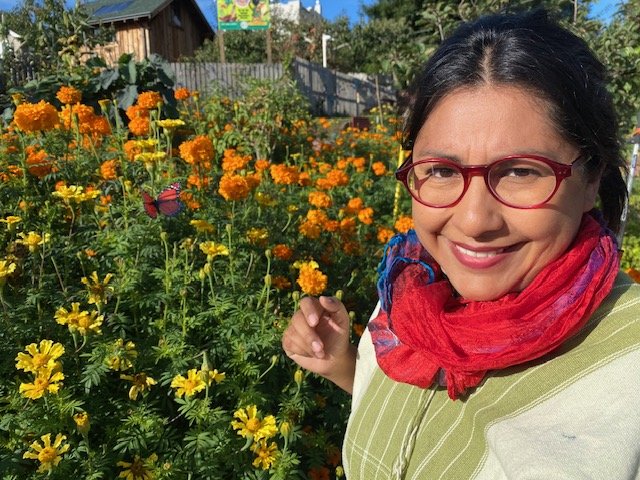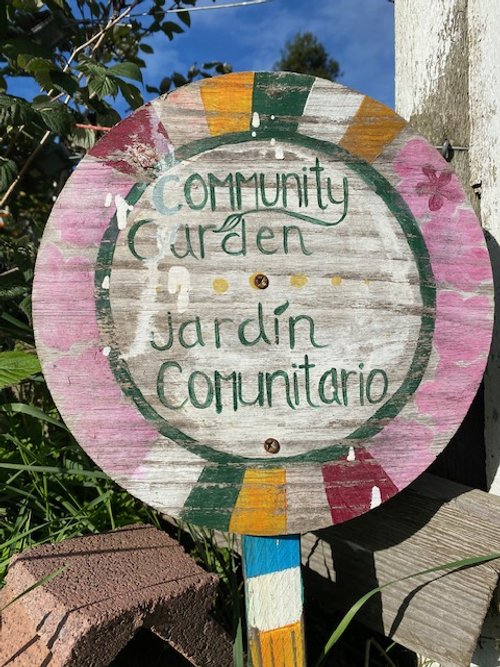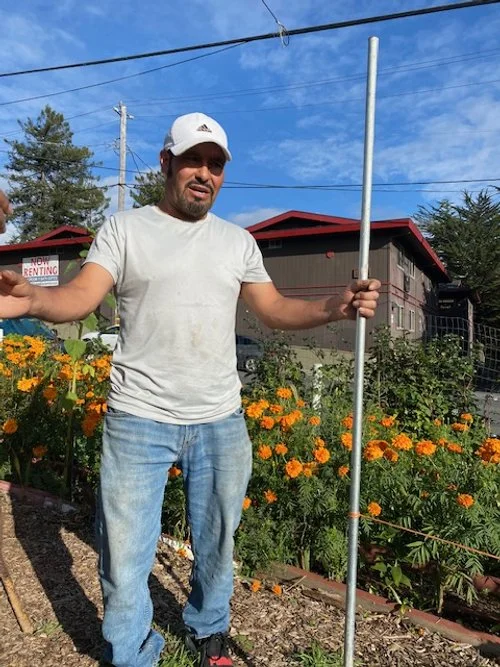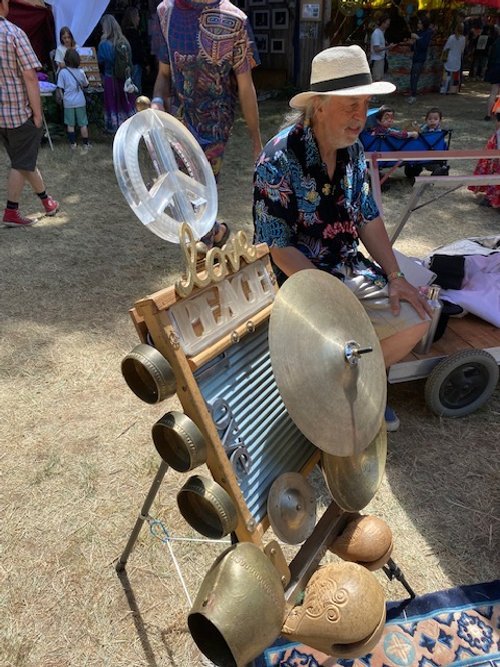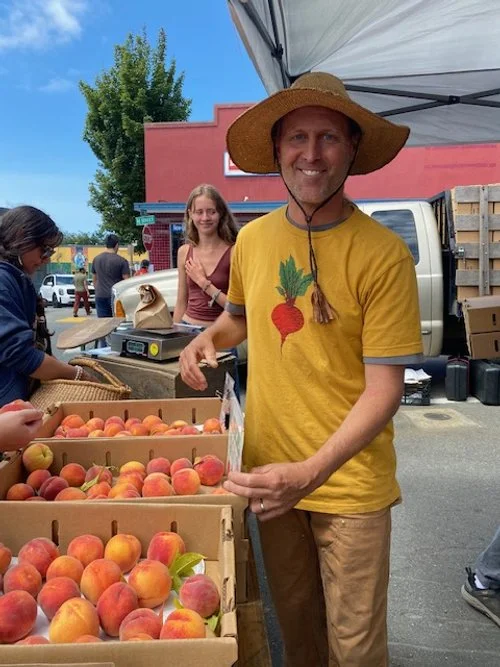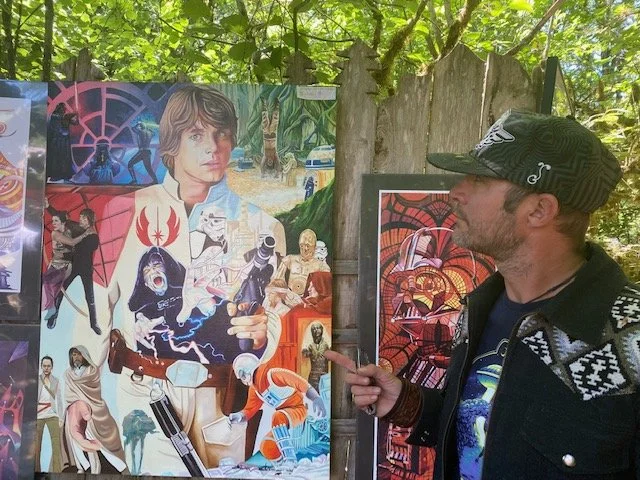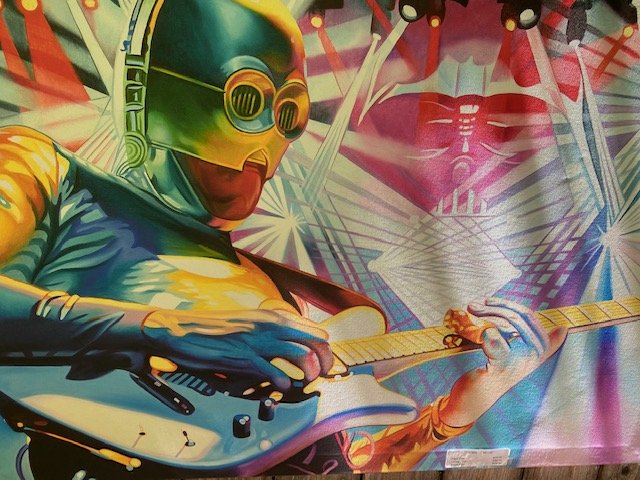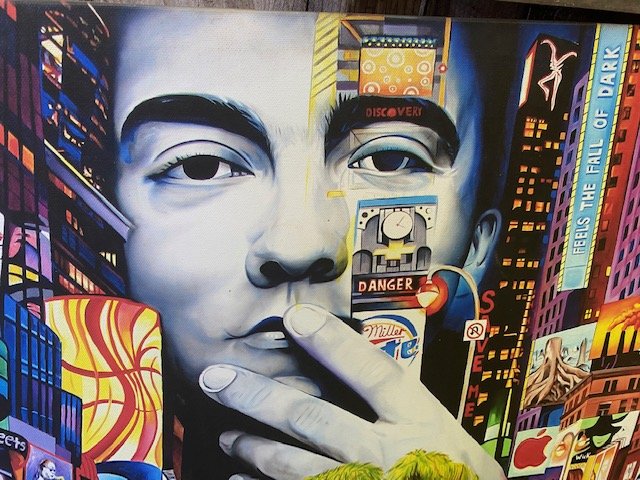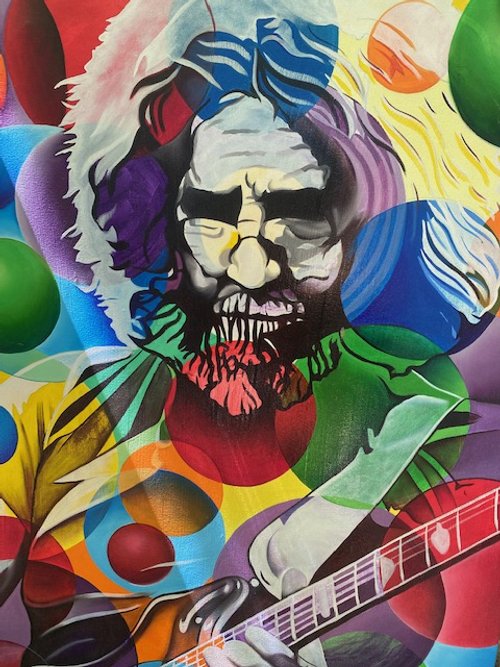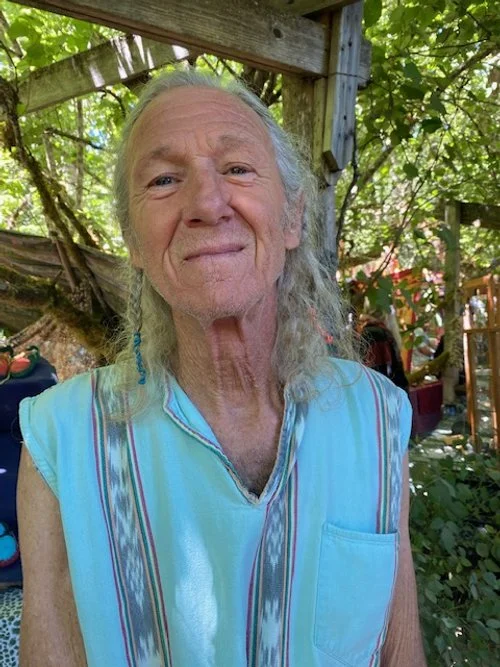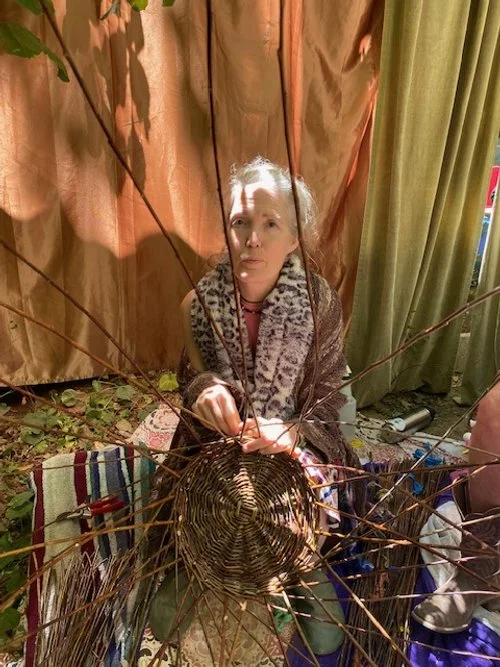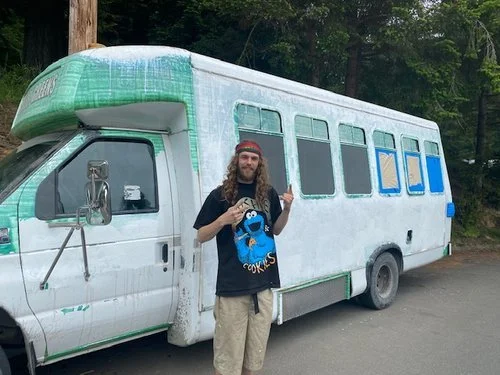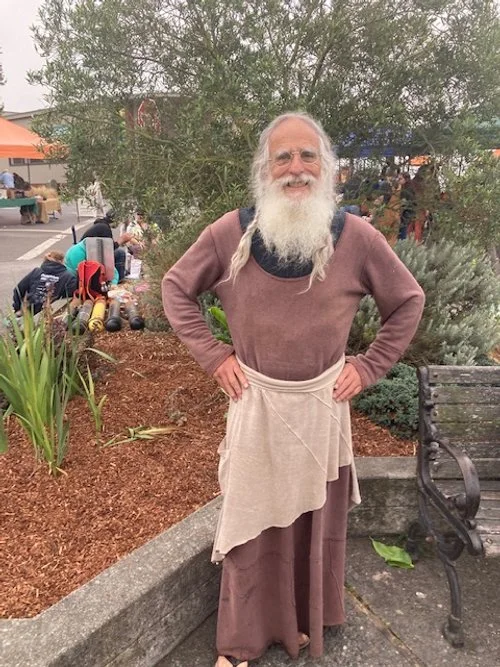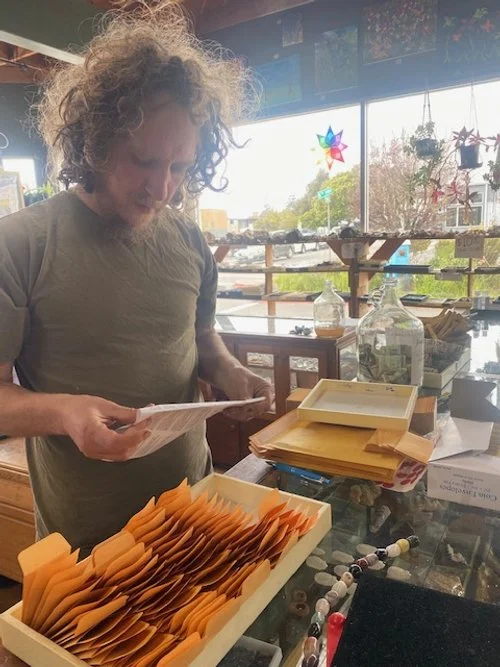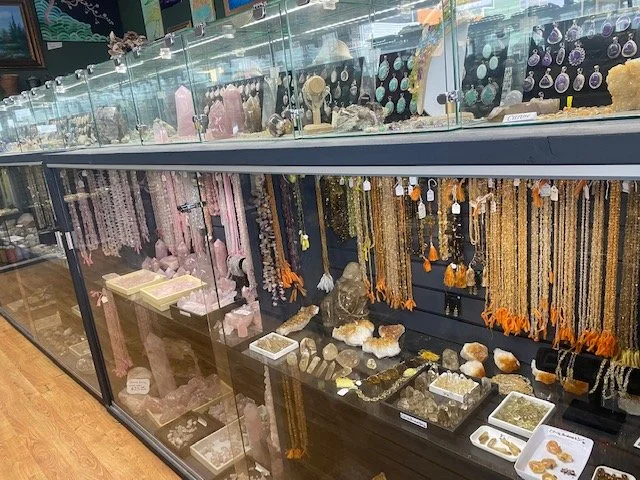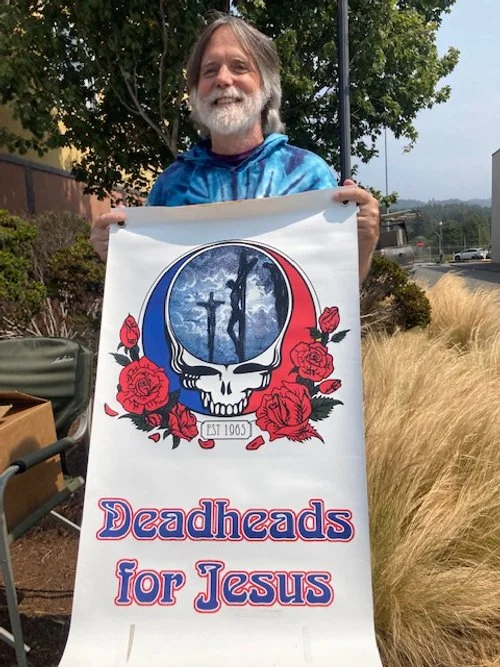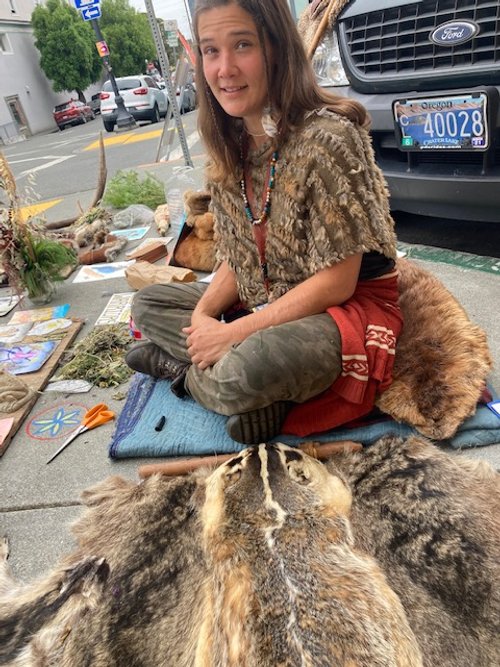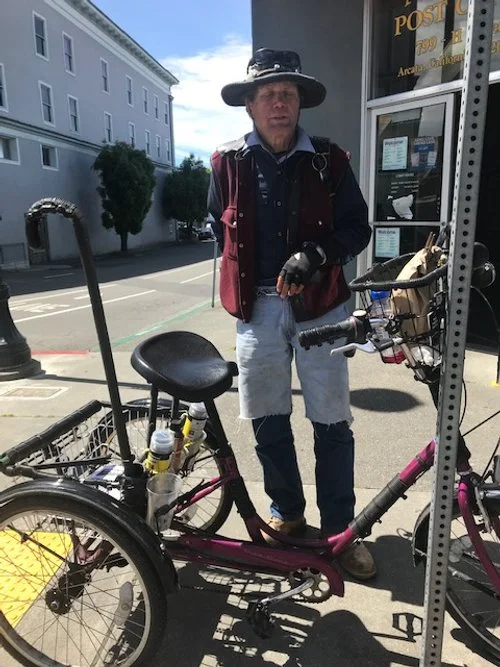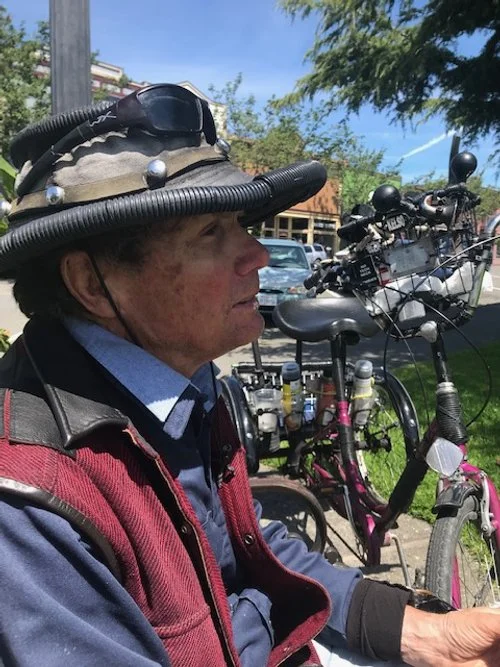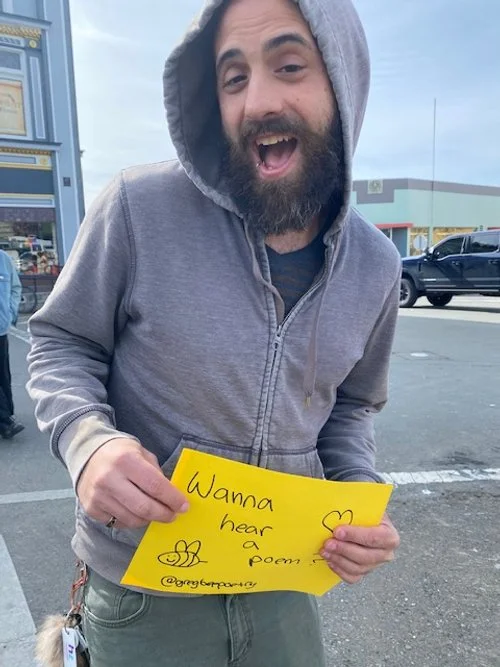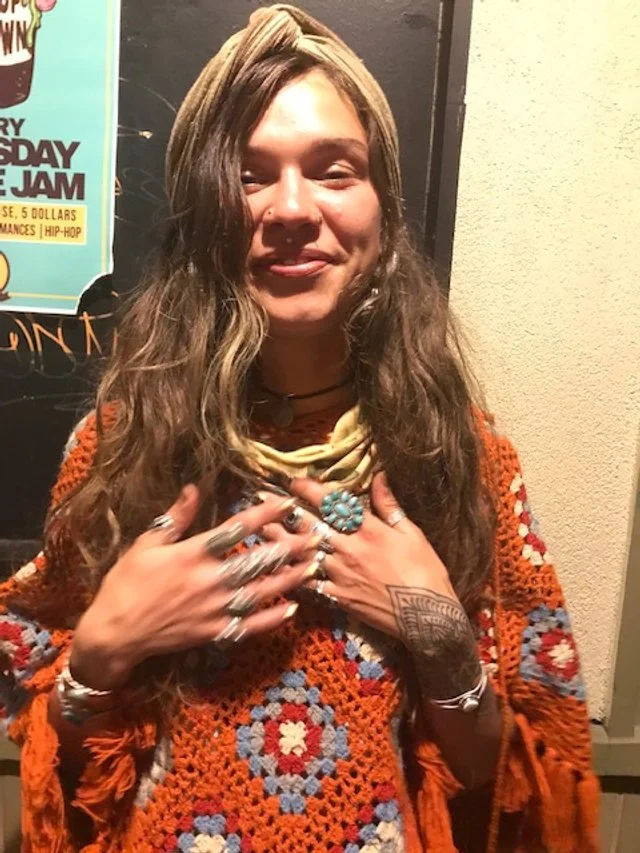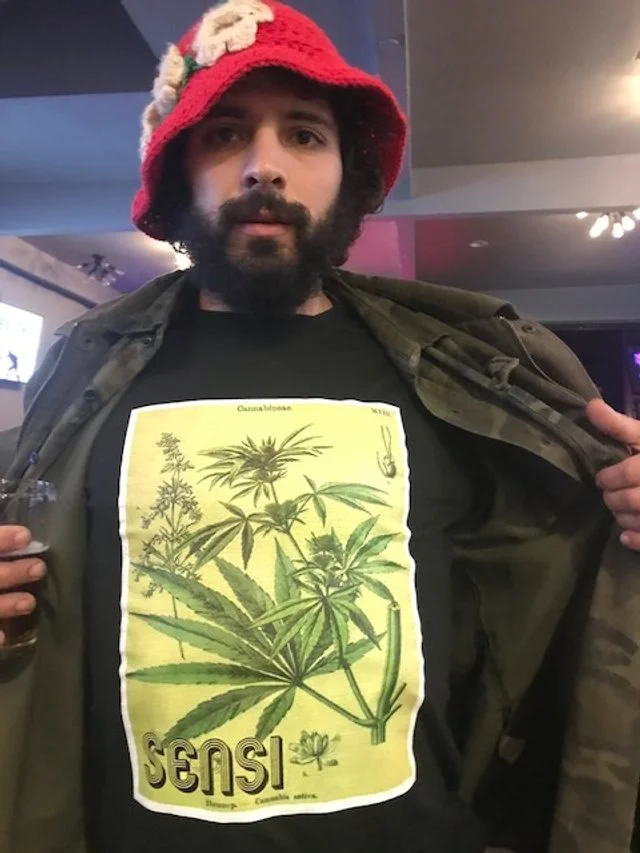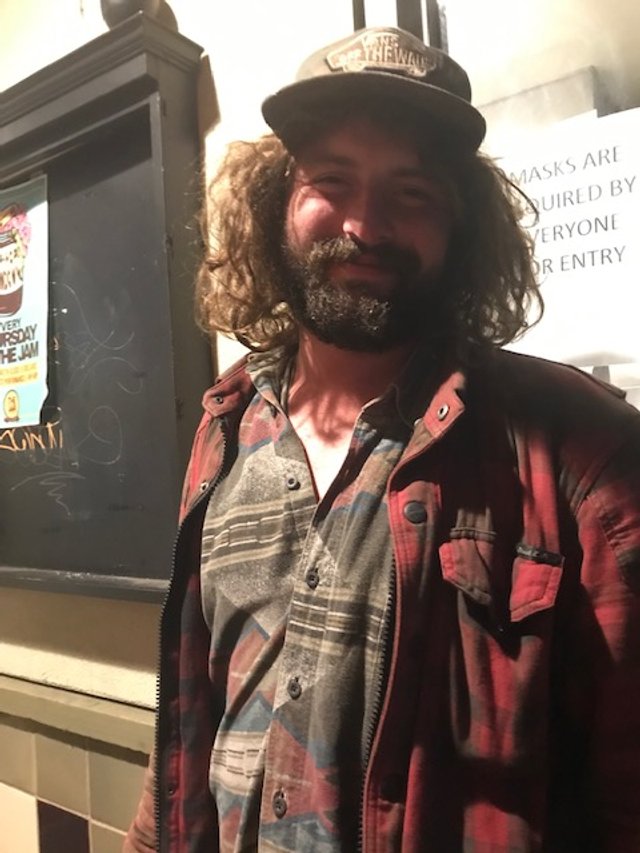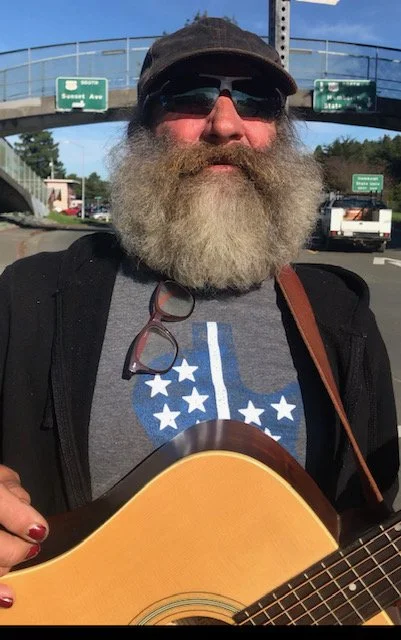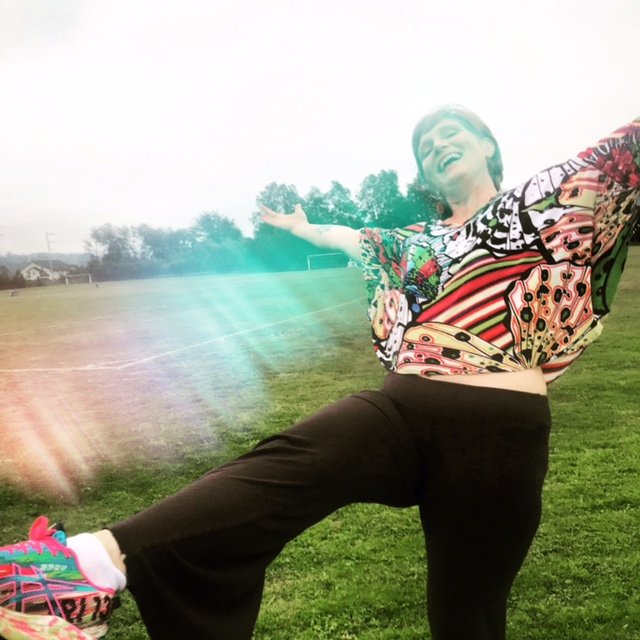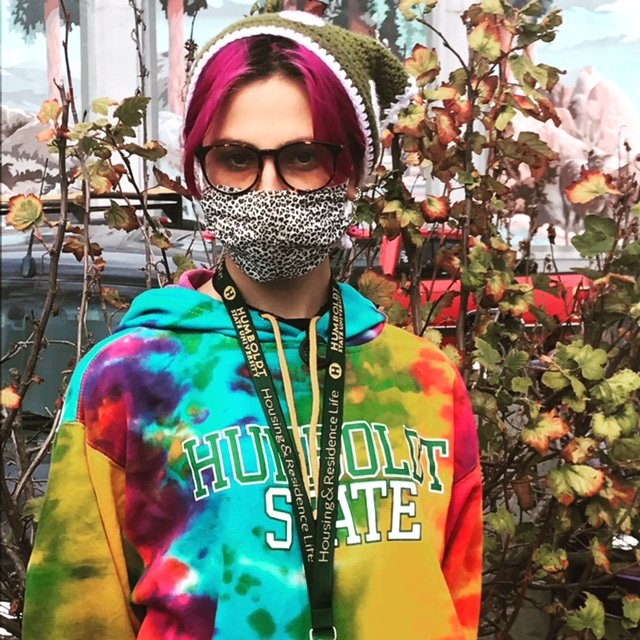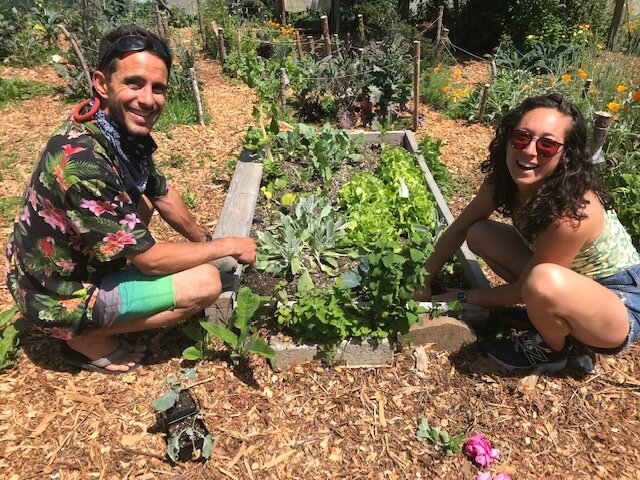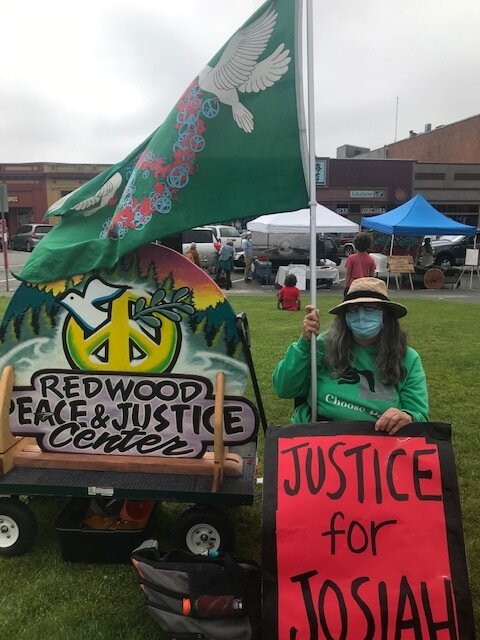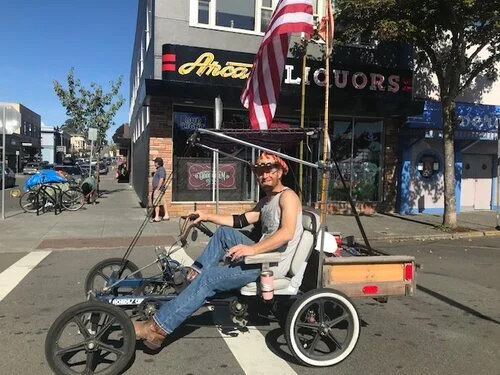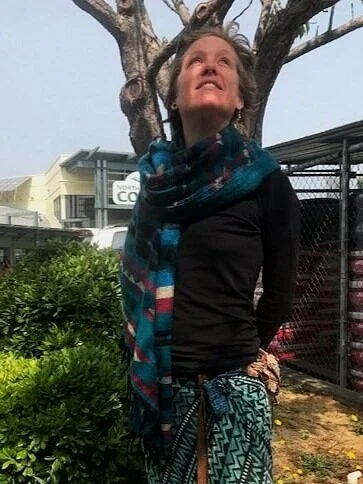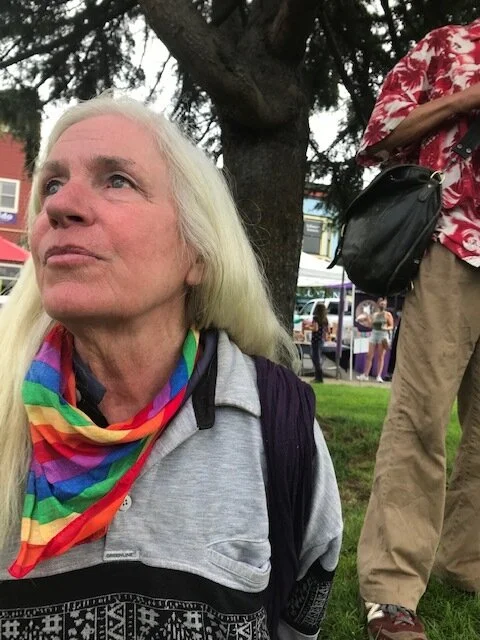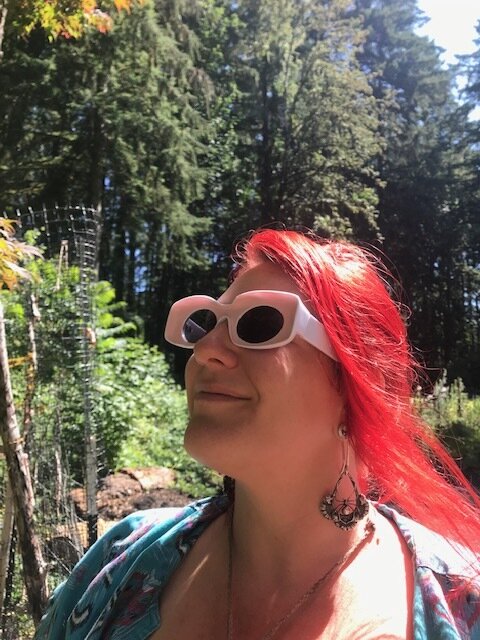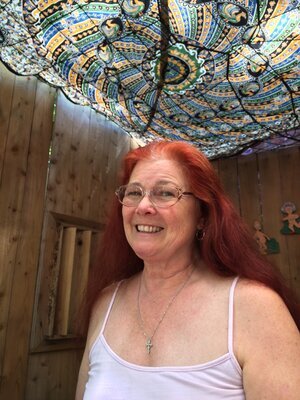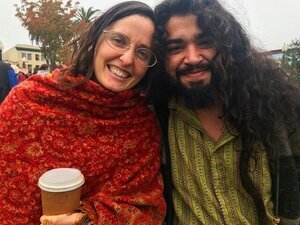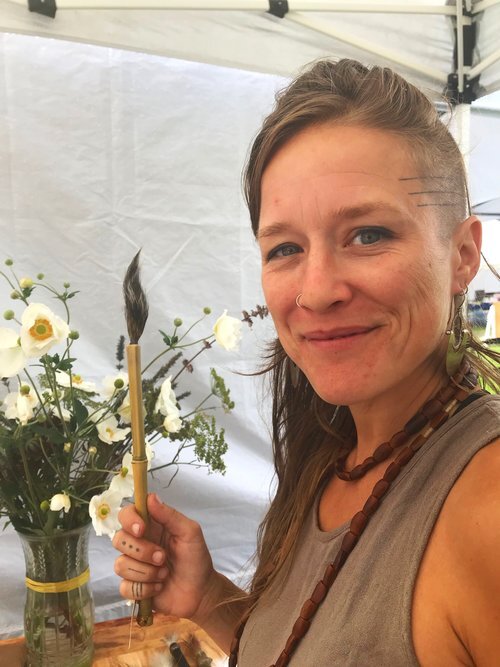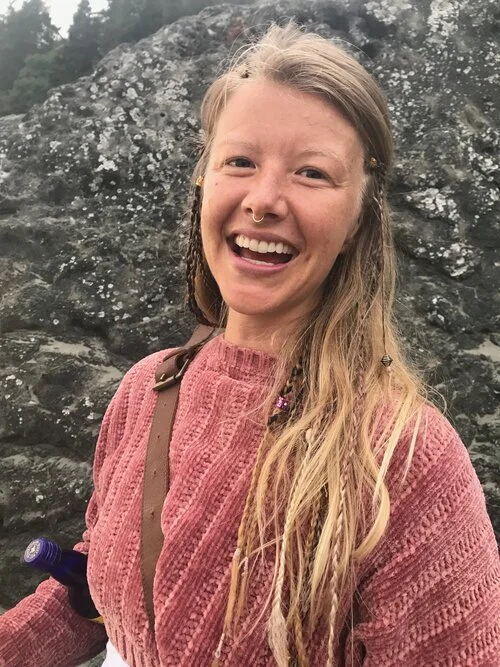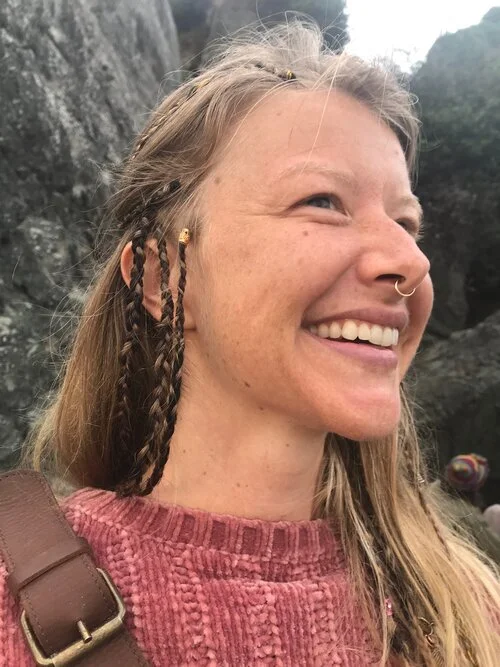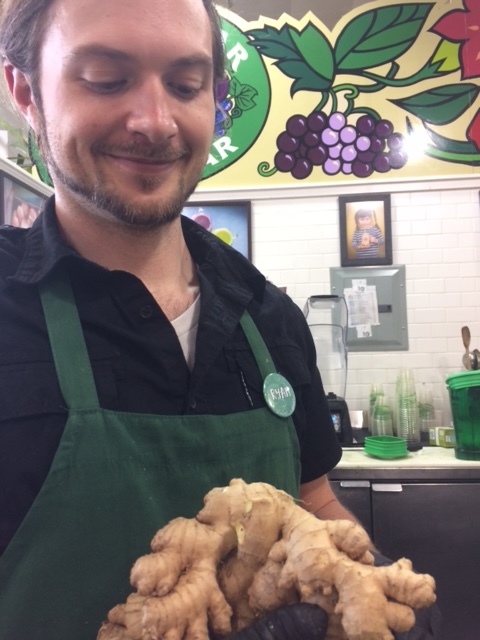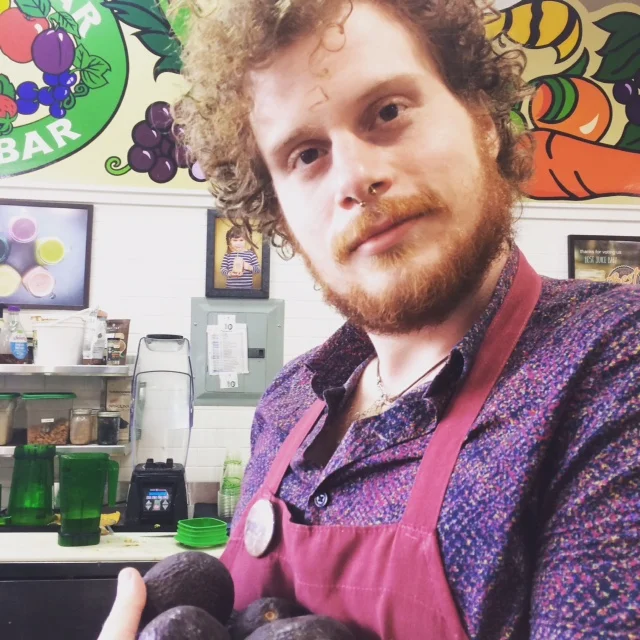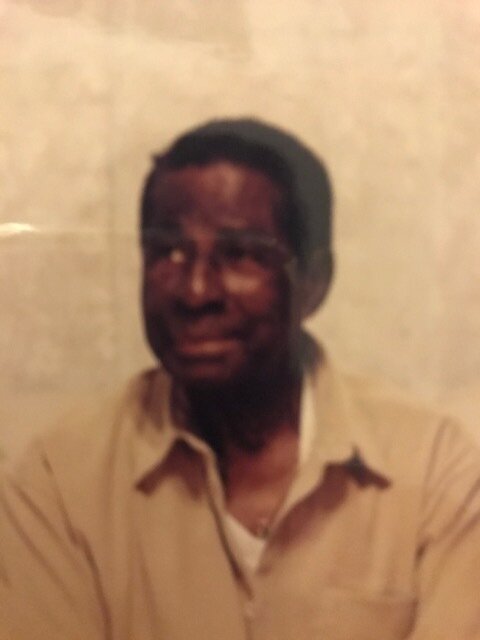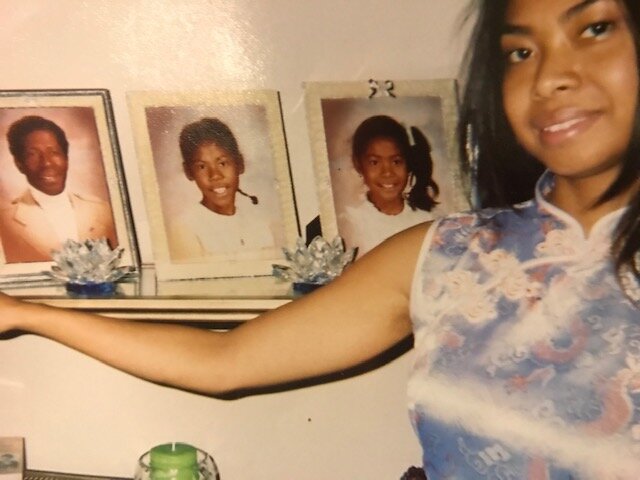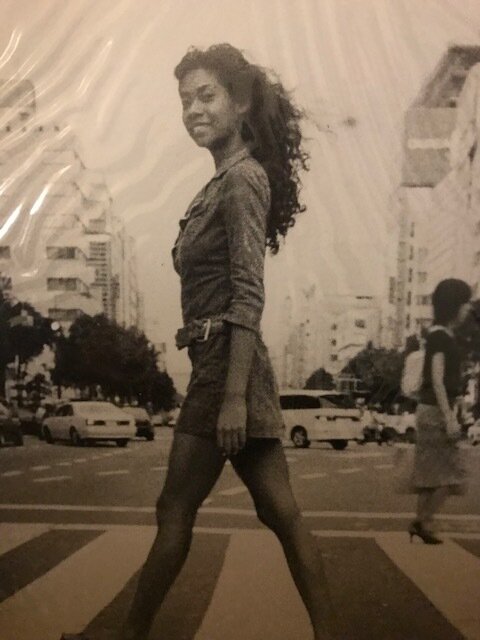Profiles of unique hipness
It is not good enough to smoke pot and wear tie dye, you got to stretch yourself to find your own unique way. It is not just about fashion, it is about a way of looking at the world and what you are doing in your life, a paradigm. Your whole self is a statement… so let’s see what hip looks like.
THEY PUT ME IN THE MOVIES AND MADE A BIG STAR OUTTA ME.
Well, we’re famous now. They’ve made a real-life documentary of hippies doing our hippy thing.
Like cowboys, hippies in the woods growing marijuana is becoming a myth of the American past. This is due to the corporate takeover of marijuana production. A few cling to our sacred ways, but it’s hard going without an income. But before we disappear into the everyday working world, a lovely movie has been made that captures the ethos of the hippie in the woods. It is called Tending the Garden.
Check out the trailer.
Rob Leonard
Whatever it is, the way you tell your story online can make all the differenceI’m the artist, MATHSCAPER. My mission is to express the beauty of mathematics and science through art for all to see. This behind me is the sculpture conflating Buckminster Fuller, sacred geometry, color science, schematics and sound in one into the form of a cuboctahedron model of a three-dimensional fruit-of-life using the sine function instead of circles.
Some of this work I feel are like splinters in my mind; some of them work themselves out and some of them have to be pulled out of my brain. This piece has been cooking in my brain for probably about four years. My last piece was a needling thought since I was 13 years old. So that's 45 years ago. I wanted a three-dimensional expression of the Mandelbrot set on my own wall and in my own house. So, I made it out of sanded plywood called dream 13. Dream 13 was tip of the hat to my 13-year-old self and was a Julia set, named after the mathematicians Gaston Julia. I carved it to go on my wall. It was actually the wall of our living room for a number of years until we sold that house. We pulled it off the wall and it ended up in the museum, the Holter museum.
Corey Glory
I do nature mandalas at festivals. Nature mandalas provide a very grounding space, a beautiful space, using all-natural forage materials. Festivals can be very overwhelming, so this walk-in art piece provides a much-needed service where somebody could just go and sit, relax, and enjoy the beauty of nature.
Mario and Dylana
We have a small mail-order seed business that specializes in our own unique plant breeding of vegetables and flowers. We have unique everything, mostly edibles. Dylana’s dad, Alan Kapuler, aka Mushroom, was one of the founders of organic food, specializing in organic seed and plant breeding as public domain. He not only coined the phrase but really saw that there were no small seed companies in the 70’s when he was getting into it. All the breeding was basically conducted at universities who were funded by corporations. Like Oregon State University was funded by Monsanto. The breeding was then becoming controlled and selecting for trivial and absurd qualities like chemical resistance. Alen was really into nutrition as well as unique architecture. So, we have been carrying on his work. For instance, we breed snap and snow peas with unique colors like purple and red, which are high in antioxidants.
We are also basket weavers and grow and manage willow varieties for weaving. We love playing with willow. This instillation at the Visionary Lounge at the Oregon Country Fair was made by our crew. Using natural materials, we create a shady, comfortable space for people to sit, eat a meal, and get inspired. Creating space that has inspiring structures out of woven techniques, with no nails, just material that we grow ourselves, allows people to relax in natural architecture. So, this space is about inspiring people to be better people and to make the world a better place that's beautiful through nature.
How I became a hippie
Brother Tom
I grew up on an island in the Great Lakes, and there was nobody there I could explore ideas with, like talk about sexuality or spirituality. They were taboo subjects. I needed to talk about these things, and so I hitchhiked, looking for a place where people were more open. I was commune hopping around the US. I wound up in Colorado and pretty good. I was at a place called Huerfano Valley. There's a book about that whole scene there. But I'm from the water. I'm from the lake and there are no lakes, no water up in the Rocky Mountains. Just rocks and very few women. I knew I had to get out of there, so I went hitchhiking again.
I got a ride from Colorado Springs all the way to a place called Salmon Creek in Southern Humboldt. I always felt like I was delivered to where I was meant to be. I was planning on going up to Canada and over to Vancouver because I'm from an island, and that place had islands. But I met I met a cowgirl named Kerry Lee. She said, I need a man to ride with me. And I said, Alright. I’ll be that man.
And off we went. That was 50 years ago. When I arrived here, the very first thing that happened was everybody said they were going to have Satsang in the morning. I was like, what the heck is that? Everybody goes, well, we're going to bring a spiritual poem or writing or reading or something that means a lot to us, and we're going to sit in the circle under the cedar tree over there, and we're all going to share around in the circle spiritual writings and play music. I was like, great! this was what I was looking for. This is what I wanted, what I was thirsting for. I had my compass needle pointed for inner peace. That was always my goal, my intention, and my enthusiasm, the thing I was dedicated to.
So, we were sitting in a circle, and everybody was reading cool stuff, and I had some cool stuff. It really felt like I belonged. I went on a hike around the property and found a teepee. I came back and asked who it belonged to. They said the guy was gone, and I could probably live in it for free if I helped them build a house. I already had started helping, so It was a fine opportunity.
Bob Dylan had an old song – Dear landlord, please don’t put a price on my soul.
Without much money, I found myself a home. That first night, I couldn't sleep because I was so excited. The next day (which was the first day), a guy named Danny took me into the biggest vegetable garden I had ever seen. There were so many kinds of veggies that I couldn't even name them all. Then, in the back, there was a secret gate.
He says, I'm gonna show you something that we learned from an old Mexican guy, and it's called Sinsemilla. It means without seed. He opens his gate, and lo-and-behold, there is this 6-foot-tall cannabis-sativa plant with purple-magenta hairs. The colas are like 8-9 inches long. I'd never seen anything like that. Nobody did. It was the beginning of this marijuana growing. I was like, I'll never buy weed again, and I never have.
So anyway, I wound up being in the Teepee. I built a little altar from the things I found in the forest - a bird skull, a pinecone, a rock, and a feather. I had a book called Toward the One. It was a very beautiful Sufi book by Azra Anakan’s son. His son wrote it from the teachings of his father. It was giving me by an amazing, beloved lover. I put Toward the One on the altar and I read a page a day and worked on a geodesic house with all hand tools. I also quit eating meat
As I became part of the community, I felt everybody was at a pretty high level. They were intellectuals who came from colleges, and came from beautiful families and had good upbringings. They were avid readers and very interested in a lot of different things. They were like hippie geniuses. They really knew everything about living on the land, with alternative power and all the Boy Scout knots and everything. We had Pelton wheels and all kinds of different fabulous alternative minded things. There were lots of great ideas, plenty of weed, and plenty of freedom. Free time. It was like no time, like earth time, moon time, some time, time away from time, time out of time.
That lasted probably about four years. I still hitchhiked around, went to rainbow gatherings, and did other things, but I always came back to work on the house. So that's the jumping-off point of the story, like chapter one of my story of finding myself and my people.
When I went back to Michigan to see my family, they were very much the same. Everybody still carried a lot of anger. They were what we call pugnacious, quick to anger, quick to argue, quick to say racial things. I don’t go back, only for funerals and weddings.
I’m so happy to live amongst the Redwood trees and the ocean and all the people that I know and love around here, all the children that I watched grow up, including my own, my grandchildren, and other people's children and their grandchildren. I know the lineage for people, so they're ethnically my great-grandchildren, not of blood but of the larger community. It's very fulfilling to watch and help create the community. I see it continue to flourish. It's been a completely fulfilling living the dream. the dream within the dream, the dream come true to be here every day. I think my epitaph will be - one good time after another.
Rouhollah Gonzallas
“I feel good about how I present myself. I love colors. I love every color. Sometimes I do mellow colors, or sometimes I do rainbows. I like to play with these things. There are too many things in the world that I don’t have control over, so I take advantage of what I do have control over.”
Joe Murphy.
I’m the maker of a piece chain that consists of ceramic or wood pendants with the word peace on them. The pendants come in 123 languages. It's my way of promoting peace through my art. I want to share the inner peace being a creative artist has brought to me ever since I was a little kid. I wanted to share this with everyone, so I created this project 33 years ago. I've made over 629,900 pieces of peace, and I'll continue to make pendants for peace the rest of my life. You can find me on peacechain.com or Peacechain Joe's Instagram page.
THE LIFE OF A HIPPIE
It started in the beatnik era. Yeah, they did weird poetry but what is not remembered is that they were spurred on by the ideals of the communist movement. Although communism is a bad word in a capitalist society, at the time, before Vladimir Lenin took over Russia, the communists were idealists. They wanted a level playing ground for everyone. Many communists were on the side of the working class. They were the bourgeoisie, or the educated class on the side of the working man, of Mark's critical and insightful book, the communist manifesto. To illuminate this time of history I am going to tell you the story of my friend Michael.
Michael is 87 years old. He has lived in a little cabin in the woods for the last 31 years. His life is simple. He is a vegetarian and is humble in his appearance. However, inside his cute cabin he has a large collection of instruments. At night he plays music with flutes, banjo, gongs, tablas, a drum set and other cultural instruments.
But Michael was a child of communist visionaries. They were from England but both his mother and father, along with many other Europeans and Americans, moved to Russia just after the Russian revolution. They believed Russia was going to be a model state of humanitarian fairness. But the history of Russia is steeped with cruel and ruthless Czars, and Lenin used the premise of communism to set himself up as another Czar.
During this time, Lenin systematically imprisoned and killed many of these foreign idealists, for they were educated and would be the future leaders of any dissent movement against him. So, Michael’s mother and father were these people. They were working hard in political positions to further the ideals. One by one the heads of state were imprisoned. Michael’s mother was pregnant and decided to go back to England to have her baby (Michael). Her husband stayed to keep working. He was a charismatic and cheerful man, and he decided to explore the countryside to meet people and lecture the promise of communism. On his marry jaunt he was taken into custody. Like so many other idealist, he and his ideals died in prison. He never saw his new son or his wife again.
Now baby Michael and his mother, Mary, were in England but as World War II heated up, his mother was not a popular person. She was considered a traitor and was suspect. Through a series of crazy events, they got out of England just before the bombing of London.
It was the last boat leaving before the shutdown of shipping but because of chaos in the city they arrived too late, and the boat had already left the dock. A kind fisherman saw this lady and her child and offered to motorboat them out to the ship. When they pulled up to the side of the large ship the purser said that if they didn’t have a ticket they couldn’t board. Just at that minute a woman leaned over the rail and called, “Mary what are you doing down there!” She was a friend and offered to share her room with them.
In the United States, Mary got a job as a translator and writer because she spoke 3 languages and Michal was sent to boarding school. As Michal grew, he became a writer of radical literature like his mother and father. He rubbed elbows with Allen Ginsburg and Jack Kerouac in New York city.
After a career in a New York publishing house, Michal bought an old theatre in LA and started showing late-night avant-garde movies. He made a lot of money, and the scene was going well. However, one day he met a musician named Christopher Tree. Christopher did a type of music called spontaneous sound, with gongs and strange instruments, where he would set up a huge array of instruments and play them however he was inspired to do in the moment. With the help of some psychedelic acid, it was an eclectic but happening show. Michal became a disciple and abandoned his movie theater, to be the roadie for Christopher Tree.
Michal lived on a commune in France, played music for a liquid light show in Tel Aviv, busked the streets of Europe, taught music to altar-abled kids in Canada, and played music to tribal people of Mexico. He lived a full life and then settled down in the woods of California. This is a history of a man who would not call himself a hippy, nor does anyone really relate to that term but his life is a pattern of freedom, exploration, idealistic living, and following one’s heart that is typical of the freaky-hippy-counterculture tribe
Miguel
From Puerto Rico, Miguel came to the U.S. to work on an organic farm in the mountains of California. Now he is a chef for a yoga retreat center
The mountains have a magnetism that teaches us ancestral values. When we go into the mountains, we return to where we came from. If you accept the call, you find yourself expanding your roots and increasing your perspective about who you are. It was like working with the living diversity. Plants create abundance that comes out of the soil. It all comes from one seed that becomes a vegetable that then carries more seeds inside, and that fractal itself says so much ideologically, metaphorically, and literally. Working with the Earth, you get away from a constructed identity into a more free identity that is made from nature. It is hard to put the experience into words.
I studied psychology at the University in my homeland of Costa Rica. My path was for telecommunication with a minor in psychology with the idea of making movies that shift the mindset of people. But then I realized that everyone was eating weak food, you know just feeding the rat race or something like that. I wondered how we will shift people’s mindsets if people keep eating this way. So, I decided to jump into culinary arts.
“Well, my passion for cooking led me to find out that food could be your medicine. Back then, I used to weigh more than £300. So, I needed to start eating differently and understanding how to heal myself. It began by engaging with the notion of self-love. I know other people who have taken similar paths. I discovered eating things like sprouts, the first shoots. And I was like, what is this? But when I began soaking in all the watery juices of the sprout, it shifted my perception, leading me to realize that what you put in your body is how you know things. I was developing my new ideology about food. What you're putting in your body is like an investment that you are integrating into your body, so if you make the right choices and invest the ideal substrate to go into your system, you will be increasing your strength in life and living with more clarity.
Sean
YOGA MASTER
I feel like yoga helps people connect and balance their lives. The movement, flexibility, strength, and even the mental challenge of doing Yoga help people connect to themselves. Yoga also brings people together.
People will try my class for the first time, and they seem a little closed off and not so open. The Yoga I teach is a big challenge. Then they'll come a couple of times and all of a sudden, they're like my best friend. They go from being closed off and kind of shy, going to the corner of the room, to coming out of their shell and blossoming. It is very cool to see. That's what I love the most about Yoga.
Brandon
I believe that food is power. Food is medicine. No Messiah is coming to save us other than us and the things we put in our bodies. Our diet, the ingredients in our recipes, and what our food eats, that’s what's really important. The information that is in sun-grown food, regeneratively grown in the earth, has cosmic information downloaded into the plant. When we eat the plant, we receive that cosmic information, and it tells our body how to operate to its highest high. That’s my truth That's my highest high.
Sean
Well, the hippie movement was a part of my life. I was born in 1963 and grew up in that era of love beads, long hair, psychedelic clothes, and posters on walls. I did all my drugs with my brothers or my sister and that was a good thing because I was in a safe zone. My parents weren't hippies, and yet they were hippies. They just didn't know it. My dad’s grandfather rode a motorcycle from Seattle to Mexico in 1913 and took photographs along the way. He's probably the first guy to do this. He had an adventurous whim. To me, that's what hippie is – an adventure.
I think that the hippie movement originally came from people who were disillusioned with World War II and the destruction of Nagasaki by atomic bombs. Out of that came biker gangs, and out of that came the beatnik culture where poetry and freeform music evolved. Jazz came out of the post-World War I from people being disillusioned from trench warfare. They were shell-shocked, and they couldn't deal with society anymore.
I think that's what the hippie movement did - they left the society. Many reestablished themselves by moving to the country, trying to create a new society by living with each other, having multiple partners, and eating food that they grew. They created community by doing things in the old way of cooperation – you help me build my house and I help you build your house.
If it weren’t for the hippie movement, we wouldn't have organic food and philosophies about astrology, music, traveling bands, and all that stuff. I'm a musician. I'm into improvised music which means that there's no structure, that you just play music; there's no one telling anybody what to do. I've always liked playing that way and to me, it’s very freeing.
The freedom to play music without any kind of restraints is a very empowering thing and as a hippie, the child of the hippie movement, it's all about self-empowerment. We are stepping away from the culture that we grew up with, being Catholic or Christian, being Jewish, being Baptist, or whatever. Because the new religion is just each other. So, playing music, getting people to listen to each other, and playing music that comes out of your soul - is my religion.
Basically, the hippie movement created a sense of freedom. I read this article about some young hippies in the ‘60s who wound up in New Mexico at the four corners at a Navajo village. The Navajo said Oh yeah, hippie is one of our words too. It means to be neither here nor there. Perhaps we are the people who walk between worlds, between paradigms.
The Internet is a good thing. It’s the new encyclopedia. Growing up, everybody had encyclopedias in their houses. That was how we did all our research. But that's all gone. Now we have the Internet. Now, things like this blog are our source of information. These insights into hippy culture cannot be lost because the hippies were right. There's a song The Hippies Were Right.
It's true because we paved the way for the environmental movement, cultural awareness, organic food, good thoughts, yoga and meditation. The Eastern philosophies crossed into our culture through us.
Veganism is a branch of the hippie movement based on purity and social responsibility. I see, with the coming global food crisis, in 20 years, veganism is going to be as common as eating a hamburger is today. It’s going to be an obscure thing, eating a hamburger, a real beef hamburger. We are heading toward a future of hippy ideals. They will become the bedrock of the cultural norms.
Right now, we're in an era where it's necessary for us to live those lifestyles in order for us to exist into the future, and so that's my contribution - to be true to those ideals, to be a hippie.
Marigolds and Hearts of Gold
There is a small community garden right in the middle of town. It had a few plants, but it never was a lively place. Then suddenly it burst to life with landscaping, places to sit, arbors, a stage, fountains, people working, kids playing, and lots and lots of marigolds. I had to stop and see who was creating such energy to the center of town. Well, an organization aptly named Centro del Pueblo has brought the garden, and the community to life.
It was a vision from a smart and motivated woman named Brenda, her family, and the nonprofit organization she runs called Centro del Pueblo. She helps facilitate gardens in every town from Fortuna to Blue Lake and brings the Latin X people together. She has found a gem of a gardener named Adam.
Whatever he touches grows, from nopal cactus to herbs to flowers, he knows how to make a garden, and his love of doing blooms all around him. Together these people and many volunteers, are making a visible community space for themselves and for all people. They are bringing beauty, culture, and life to the center of towns.
“Central del Pueblo is an organization that started as a grassroots organization in 2016 and we have evolved into a nonprofit. It's for the Latin X population and indigenous immigrants.
We started here in this community garden in 2021 during the pandemic. We sent out requests to the food bank and community gardens to help families that were afraid, or just had COVID, and couldn't go to the food bank. Cooperation Humboldt, at the time, invited us to collaborate here with them. So, we started and reshaped the space, and changed the landscape. In the next year, Cooperation Humboldt withdrew from the garden, so Centro del Pueblo took over completely. From the very beginning, we had many volunteers and a workforce.”
“This flower, calendula, means a lot to us. It's in our logo. We use it as a medicine, as a source for handcrafts, as a piece of our altars. It has so many meanings and uses for us, and it's also a companion plant. It's been the whole year here in Central del Villa because it helps other plants, and it helps to control bugs. So, it's just wonderful. And yes, we have a loving big family of volunteers that help out a lot. I think they feel the love. So, that's why they try and work so hard.
For Día De Muertos on Saturday, we're going to have visitors here in the garden and explanations about what we do in the garden for these festivities.” - Brenda
Music Man
His name is Reggie Miles. He is not only a musician but also creates musical spaces for others to play, especially children. He said that he was playing at a festival and he had his instruments in a pile by the stage. Kids kept coming up to the instruments and playing with them.
At first, he shooed the kids away, then he let the kids play with them, by the end of the festival he had set up a blanket with all his instruments laid out for the kids. He said he enjoyed himself so much that he decided that he wanted to make musical play areas for children.
Now, he travels to festivals and, unbidden by the festival coordinators, sets up his musical play area and lets anyone come and make sounds or music. He says he doesn’t make much money but he has the time of his life.
Jock grows fabulous peaches
“When I graduated from college, some of my friends left the area, but many went to Redwood Valley or southern Humboldt to start growing weed. I had a degree in fisheries biology but I didn't feel like doing that. So, I went to work on a farm in Willow Creek. The old man I worked for retired and kind of handed me over a very small farm. It was a 2-acre orchard, and since then I’ve grown it into a 19-acre farm. In those days, 30 years ago, (the rural farm community) Willow Creek was very conservative and I had to work hard to make a good name for myself only because I had a ponytail. Over the years I won over a lot of people (because of my ethic). As tempting as it was, every spring to grow cannabis, I knew I had to keep with the peaches and tomatoes. it's all about feeding our community. That's our mission statement of the farm - grow community through food. Healthy food makes a healthy community. it's all part of the solution
“When we built our house, we sourced 100% of everything locally from Humboldt County. So, it has Redwood siding, the floor is actually an 18-inch earthen slab over pea gravel. There's no plywood used in the whole thing. We used ground denim as our insulation. It’s well insulated and well situated, so we don't need very much heat. We have a tiny woodstove, and we don't need air conditioning even though it will be 110 next week. There's a way to build where there is very little energy input to get more out. I mean, it's kind of the same way we look at the farm. With the peaches, it's not about the red blush, it's not about the size, it’s not about shelf life, it’s about quality. People come back for the flavor. So, we always look for those old varieties that are hard to find and taste the best.
The business has been around for 30 years, and we don't have a logo, we don't have a web page, it's completely word of mouth. Every morning the line starts to form half an hour before we open, and the line doesn't disappear until the peaches are sold out. It's all based on community and word of mouth. If we don't have a good product people don't come back next week. So, it keeps me on my toes. The industrial food system they're not good at quality. They’re all about quantity - mass production and so quality is where we can easily beat them.
The biggest revolution in this world would be if we all just gardened a little more. If we all just understood the value of food and maybe slowed down a little bit. I think that would be it. We wouldn't need any more. Everything else, like happiness, contentment, compassion would just come.”
Joshua Martin
“ I’m a high school art teacher. I really love my job. Like the first couple of years, I'd be walking down the halls I could not believe they were paying me to do this. In the beginning, it was all about how I could go see as much music as I could. A job was just so I could pay for this and then once I was able to see all the music I wanted for the most part, I want to give back to this school and my job, and the community that I love so much.”
“Music has given me a lot and then the bands that I really love - they talk about kindness, and I take this feeling from the concert or festival and take it out in the real world and be that. I try to make my classroom look like a little rock concert with my paintings and things hanging from the ceiling. So, I make my classroom into a mini festival. Many times, when students walk in, they're kind of blown away or sometimes they'll be in a visual overload but most of them like it quite a bit.”
“I give 100% of the profits from my booth to a scholarship from my students. My inspiration is obviously music and I mixed it with art. The biggest inspiration for my art is the lighting designers of a lot of my favorite bands. It's their colors and the lights that are bright. My favorite color is the rainbow.”
Kalil
“I did dances of universal peace, what's called Sufi dancing, for eight years with Esop, who was doing it with his partner, Ann. And they asked me to join them and then when Esop died, I took it over and led the dances for a total of 20 years. But things changed and I had to turn it loose. it's no longer happening. They were trying to get me to come back and do it again, but I said I'd do it only one day, not all three. So, we'll see.
I'm not a performer so my success is when people have the Sufi dance experience and then as they're leaving their thought is- Wow, I've never sang that well before in my life as opposed to - Wow, Khalil was really good. That's what The Beatles want and Eric Clapton, people like that want you to go -Wow, they were really good. I'm not. I can sometimes, with God's grace, bring out everyone's gift. There's magic in creating a safe space where people are free to sing out. So yeah, I facilitate.”
The Weaver
“My name is Carolyn Sunflower and I’m a basket weaver in Oregon. I love primitive skills and basket weaving is one that's close to my heart. I like to weave from both European and native Oregon traditions. I do what I do because I'm addicted to weaving. I love it and I love sharing the teachings of the weavings because it's a skill that's being lost. I think it's an important skill. You can do anything with a basket.
I've been called the hippie, but I don't really relate to that. I think of hippies as the 60s movement. I'm more, I think, earth-based with primitive skills and while the hippies may have moved into that, with some of the communes, those communes weren't sustainable unless they were hierarchical. A lot of the old ones that we're familiar with no longer exist as they were at that time.
There are a lot of negative connotations to hippie in in my generation. I think the new generation doesn't have those negative connotations so when they say ‘hippie’ I kind of cringe a little bit whereas they're not meaning it in that way.
I guess when people call me a hippy, I always say I'm more of a Granola. I don't know why that comes to me or even what that definition is. Maybe it’s more earth-based. When I think of hippy, I think of a drug culture and that's not what I’m about. I think back then, for many people, that drug aspect was recreational whereas a lot of the drugs that are in my life now are very medicinal and there's a different awareness and a different mindfulness. So potentially some of the difference between then and now is the mindfulness that we use in our choices about everything.
It also comes up around the word ‘Pagan’ or ‘Wiccan’ and I don't relate to either of those because I feel like it is more personal, it's not group-based. I don't need a name for what I am. I practice Earth-based spirituality but it’s my own. It's not Native American, Pagan, or Wiccan, or whatever alternative religious base that has become so popular. I'll bring someone else into this if they want a journey with me, but it's a personal journey, not a group thing. I don't have to define it, or myself, for somebody else.”
Gator
I spent 15 years in the Navy bounced around from one side of the country to the other. But I'm a biker. I ride a Harley and hang out with rough-looking crowds – bikers and sailors. Some things happened that weren't really all that great for me. But I wound up on an island up there Orcus Island and that was about 30 years ago. It's like being reclusive on the property there. I don't leave the property much.
I don't ride the motorcycle with a bunch of people anymore. But I come to this fair because my wife is a jeweler. I tell my biker buddies they should come to see the people at the fair. All these freaks and hairies. I'm saying freaks and hairies as an enduring term actually. The people here are diverse. Getting out is not gonna ruin you. I tell them, to give it a taste to see what it feels like.
Tumbleweed
They call me Tumbleweed. I just like to have a good time. I'm building a shuttle bus. I used to live in a short bus but now I have this shuttle bus- it's a lot bigger. I've gotten everything framed out so far. All I need to get is it electrified and plumbed. My goal is to take it to Tahoe during the snow season. I want to get a job at the ski lift and just a snowboard for a month or two. With free rent I can live nice. I just installed a wood-burning stove, so I’ll be warm.
I just like to have a good time and not really stress about the little things, you know. I came out here to Humboldt County in 2019, fell in love with the vibes out here and I've been pretty much up here ever since. I can't wait to explore the rest of the northern coast with my shuttle bus and maybe make my way across the country.
Rodger
My name is Rodger - just Rodger. Why my name is Roger without a last name is when I lived rurally, everybody knew me as Roger - Roger who builds houses, or Roger who installs solar. I like living in a community small enough that people know me. So, I am known as Roger, and I didn't need to be addressed as Mr. So that's what my name became, and it's been that way for about 50 years. If there can't be personal touch whereby people know me directly then I'm living in a place that's too big for me.
I have installed solar panels for the last 30 years and before that, I installed Pelton wheels before that, in my younger life, I guess I was doing carpentry, and also was very deeply involved in activism that had to do with civil rights and equality. I was Shirley Chisholm's aid back in the early 1970s. (If anybody remembers her; the first black woman candidate for the Democrats primary.) Yeah, so kind of evolved from that to full-time installing renewable energy systems.
I have a passion to live in a clean as possible manner. People have been trying for thousands of years, but people are very diverse, so some people are trying a lot less right now. I've had a lifestyle and work that is about sustainability. If you don't live sustainably, and you don't expect that of yourself - it's not going to happen. Everybody must live sustainable for sustainability to happen. So that's the best I can describe of my life.
Kai
“My name is Kai. I've been in Humboldt for eight years I'm a career trimmer, and I’m super into vintage fashion and western wear mix. I am so passionate about cannabis, Humboldt, and the countercultural movement that this area birthed.
Honestly, not to be Debbie Downer, but it’s been incredibly depressing this year watching the impact of marijuana legalization on the spirit of the hippie community. It's really sad to see people lose that sense of freedom and sovereignty that they built for themselves.”
Michael Reeves
He runs a shop in Arcata where he sells gems, food, and plants.
I was told a long time ago that if hippie stood for Happy Intelligent Person Pursuing Infinite Enlightenment. I don't know if that was the original acronym. As a people, we're questioning the definition of what's it like to be a hippie because we see people who go to concerts and do drugs or whatever and wear tie-dye. But for me, if you're pursuing infinite enlightenment and you reach it on some level, you have to move into a stage of action where you actually start to enrich the community around you with the things that you've learned along the way.
I started selling gems as means of survival so that I could spend time with my family. It just offered me a little more freedom than construction work or some of the other jobs that I had been doing. So that's how I started doing the gems. With the seeds, I had a lot of long-term plans to make the world a better place and try to fix some of the problems we have in our society, but a lot of those plans were kind of bulky and took a lot of energy to get off the ground. It's hard to get people involved when a project isn’t already established. People would like you to believe that they want to help or be a part of something like that but are apprehensive when it comes to actually putting energy into something that they don't have 100% control over or is not just for them. So, I wanted to figure out how to get these projects off the ground. Eventually, I just got to the point where I decided I had to find some small way that I can make a meaningful difference in the community, and for me, that was giving away strawberry plants. We started to give away strawberry plants here. It was just something I could do with little investment and on the fly. So we got 1,000 strawberry plants and started giving them away. It turned out to be really successful. It brought a lot of people into our shop and people really appreciated it.
We continue that program for a few years with plans to expand by getting other shops around the country to sponsor the same thing. We could be giving away millions of strawberry plants a year in different locations and for the sponsoring shops, it would be good for them and good for their community. We could continue to grow our small little effort to encourage people to be more sustainable and self-reliant. I started thinking about how can I expand this in other ways. I realized that seeds were a very stable thing that we could give away and were easier than live plants and so we started to give away seeds. Eventually, I created a website that had our seed list on it and people could mail in requests for free seeds.
It was possible for people to just donate for a stamp if they wanted to or they could just request online without any donation at all. We filled those requests as resources allowed but in contrast to the strawberries, when we started giving away seeds people just asked us where they could donate money and how they could support what we're doing. People believed in what we were doing.
The seed organization received a lot of support. We had 1,000 members in our group on Facebook and now we have almost 100,000. It feels good to be a part of something that gets universal support. People from different cultures and lifestyles, we got people on the right and on the left and in the middle and way up high and way down low that all really appreciate what we're trying to do. They support us in whatever way they can. So, that's encouraging and it's been growing.
Then I got into food. We tried to offer a natural product-buying club. But people aren't really interested in saving 20% on their food which is surprising to me because $7 per can of soup seems like an awful lot to me. We haven’t really attracted a lot of people to this. The bigger concept is the idea that necessities of life – food, energy, and textiles are all being controlled and distributed by very few people for the sake of profit. If we just rearranged our buying habits a little bit, we couldn't really change the world, simply by creating distribution systems that were operated on behalf of the people. That's basically what our food distribution is. We try to carry products for dramatically less than what they would pay in a Co-op or retail stores.
Our Co-op here in town originally started much the same as what we're trying to do. People would order and then add maybe 5 to 10% for an administrative fee and now the markups of the Co-op are like 50% or more even though you know with inflation the cost of food has gone up. So their profits are going up too, but they haven't done anything for their members. We distribute food on a nonprofit basis and try to build support for that so that we can reinvest into the community. For example, if the Co-op were to set aside $0.25 for every toilet paper product that they sold, it would barely affect their margins but over the amount of volume and time that they've had to be here, we could have built a toilet paper factory that recycles the local paper and employs people and reduces pollution. All that simply by just taking care of ourselves. You know, during the pandemic when there's a 90-year-old woman looking at the empty Isle of toilet paper - it’s kind of preposterous in the world of excess that we live in.
That's part of the problem - when our distribution systems are managed purely for the profit of a few people, we are going to end up with shortcomings in the future because if the profit margins aren't right then the suppliers are just going to shut down regardless of the need. To further on that, I’m creating a website called shop jungle.org. it's kind of my anti-Amazon. We have lower commissions and commissions are reinvested back into the communities that we serve rather than going into one person's pocket like Amazon.
Hopefully, we'll be able to create further infrastructure, combine existing buying clubs and Co-ops and eventually have our own distribution system that can rival the juggernauts. We hope to start bringing the resources back to communities that will invest in local production. I think that is the key - maximizing our local agricultural potential and reducing the amount of shipping and all that kind of stuff that goes into corporate products. That's the direction that we're going with the food distribution, but it hasn't quite taken off.
trichocereus cactuses
The cactus that I have are trichocereus cactuses. I am a member of the Native American church and I use mescaline-bearing plants in my spiritual ceremonies. We sell trichocereus cactuses as ornamental for people with an interest and such plants. I don't think I can legally sell them for human consumption unless you're a member of the Native American Church.
The whole idea that to consume a mescaline-bearing plant you must pay a fee to a religious entity is discriminatory. Once you've identified the fact that people can use psychedelic substances to have spiritual experiences then we have a right to pursue religious freedom however we see fit. The very notion that it could be limited to one culture and that there would be a gatekeeping fee in order to pass through – it’s robbing humanity of the ability to discover spirituality on their own terms.
I guess my philosophy, my spirituality, is helping our culture and society to become sustainable and self-reliant. To reduce the middlemen and tax men in our lives. Basically, using sustainable principles to increase the quality of life for all living beings on Earth by producing things locally. Products will get cheaper and the money we spend on them will stay within our community rather than being exported to massive corporations. I hope to lead society to a place where we get a good value. Where our government actually serves us with the purpose of making our lives easy instead of making our lives more difficult. I believe in creating sustainable systems that support communities. I think my philosophy is sustainability and self-reliance in order to save our ecosystems.
David Deadhead Christian Smith
“Christian is my real last name by the way. So, my take is Jesus is love. Jesus has been misrepresented to a large degree by the church. The church has a narrow, dogmatic way of approaching the gospel. A lot of people have left the church, but they still love God, they still love Jesus. The church itself is kind of this echo chamber these days. I was raised going to a Christian church, an Episcopal church, but I hated it. I rebelled against it. It was formal. It was religion.
Then I became a Deadhead in the mid 70s and reached a point around 1979 when the Dead just released an album called Go to Heaven. On the album a song says you're lost sailor you've been gone so long at sea, the shoreline beckons. There's a price for being free. So that was part of what instrumentally changed me. A very interesting sidebar was I was at a place in my life when someone at school shared what Jesus was all about for them. I mean to me, Jesus was a hippie. I don't remember a word my friend said, I just know the next day, when I got up, I was like, wow this Jesus stuff is real. It isn't just a mythology. This isn't just ancient history. This is real, and I felt like it changed everything.
I thought about that for quite a few years. I thought about the Grateful Dead - the skeletons and the death imagery - that can't be about God. But within a couple of years, I realized that, actually, the Dead music was pointing me towards God; towards being a more loving person, and a kind person, and everything that Jesus taught. Jesus is what gives me motivation. It’s nice to have something like that 'cause I'm often disappointed with the church. When I see people coming together joyfully and communally, it gives me some hope.
Another of the Grateful Dead songs from Attics in my Life starts out saying - I have spent my life seeking all there is to see. Close my eyes to see and close my ears to hear, and then it just goes on to say -you know, trucking. Before that Jerry says, if my words did glow with the gold of sunshine and my tune was played on a harp unstrung, could you hear my voice come through the music would you hold it near as it were your own? There is a road, no simple highway, between the dawn and the dark of night. There is a fountain that wasn't made by the hands of man…
To me, that's talking about Jesus there. Maybe I'm delusional, but I don't think so. I mean if God is omniscient, and God is omnipotent, and God is trying to reach everybody where they're at - not everyone is going to go into a church and maybe that's for the best. For a long time, I think I kind of hid my dead-headedness from my Christian friends because I didn’t think they would understand. But now, years later, I'm very transparent about it. I set up this booth called Deadheads for Jesus. I've been doing this for about 3 ½ to 4 months now and the response is incredible. People come up to me and are happy. I've got Christians that come over as say yeah! I have non-Christians say - I love it Jerry, Jesus! It's resonating. It's reaching people.
If I can give one last plug - I go to local church called Catalyst we meet in the park every Sunday at 11:00 o'clock for services, but when it rains, we have a tiny little building next to the Arcata Co-op. If anyone wants to hear more about Jesus in a very loving non-threatening non-religious way, come check it out.”
Rom Dave
“My name is Rom Dave, and I am on an epic journey to fully evolve my awareness of loving compassion and kindness. I’m doing that through serving food and song.
Yet each day, I'm working on refining the subtle layers of my healing by learning to love my own shadows. Loving the things that I create within myself: all the self-doubt, all the low self-esteem, all of that I-don't-deserve-enough, and I'm-not-good-enough. I'm afraid of success, I'm afraid to socialize with people, I'm afraid to be out here talking with you. It feels good, in this moment, to speak that truth. Knowing that I can alchemize and transmute these feelings and when I do, I'm gonna be such a scene - an unstoppable force of love in this world.”
Mary.
I'm an artist and a forager. I've been self-studying the Pacific Northwest native plants and their uses, as well as restoration of wild meadows because a lot of our fields have totally been neutralized down to one plant. This has killed tons of insects and even animals – this is really important.
I live in my car and my Tipi because I can’t stand the idea that we're digging up the earth so much. The Earth as we know it is totally shifting and it's extremely traumatizing. How much are we gonna keep carving out until it's not in its natural form anymore? I don't like the idea of buying a piece of property and putting a house on it because we are seeing what happens when thousands of millions of people want to do that and at what point are we gonna say no, we can't keep doing this. When are we gonna start buying the houses and tearing them down and putting the fields back? We need to learn to live with nature as it is.
I know it's complicated. We live in an interesting world where even the unnatural kind of looks natural. There's so much to learn. But that's my movement - less asphalt more grass.
Casey Waterman
Casey owns and operates the water store New World Water, providing water that is filtered, re-structured and mineralized for the health of the community.
“Why water is important is that we are made of water. We shouldn't be ingesting the chemicals that they're putting in the water. Chlorine is a basic chemical but it's really not good for you long term. It can mess up your guts. It's not a healthy thing to consume or breathe in through the shower. Another thing is that cities do is fluoridate the water supply and it's not an easy chemical to get out of the water. It takes pretty serious filtration to remove. There have been studies; a famous Harvard-based study done on children in areas that fluoridate their drinking water found that children have lower IQ and that's an official study done through a university.
Fluoride is also listed as a neurotoxin. It is banned in many European countries. One of the important reasons to come either here or anywhere that's able to take it to the reverse osmosis levels to not ingest fluoride, so that's one basic reason. It’s something very simple and affordable a person could do to improve their health.
Also, just not to be dehydrated. I think there are theories that low-level dehydration is the root of a lot of illnesses. When water is treated with chemicals or subjected to the way our plumbing is with the sharp angles and holding tanks, the theory is it clumps the water molecules together into clusters, but the way your cells receive hydration is one molecule at a time through water inlets on the surface of the cell. So, when the water is all clumped together even if a person is drinking plenty of tap water, on a low level they're not being hydrated efficiently. Water can pass straight through the body without the cells getting what they need.
So that's another reason to make the effort to get better water. This is what is considered structured water - is to reorganize the molecules into a coherent pattern. You would find water that way in nature. Natural living water will swirl in vortices, and it will structure those molecules a way your body is meant to receive them, but when you put chemicals in the water and you subject it to the things we do, that structuring goes away.”
A.J. and Jeff
AJ- “My thing is rejecting the standard expectations of society and living my own truth, regardless of what that may be; just feeling comfortable in my skin. It took me a long time to get there. It's the greatest feeling ever. There's no definition to it.”
Jeff- “I hate the news. Actually, it's very boring and most of the time it's bad news. TV is wasting my dam time.”
Wayne
“I live in the moment and that is the only way to live in this world.”
Sells his jewelry and joints on the corner.
VAGABOND IN THE USA
Kalso.
Rides a three wheeled bike and tells his story.
I’ve done my share of traveling around on a bicycle, motorcycle and hitchhiking all around the United States and I’ve been to Vietnam, Okinawa, the Philippines, Hawaii, and Australia as a Marine. But I’ve come to the really sad conclusion that most people live like hermit crabs. They are all in a bother when they get out of their tin can to go into a box and get out of their box, then back to their tin can. They are all upset and worried and frustrated until they get to their tin can or their box. This makes me lonelier than I would normally be. I’ve been outside and on my own all my life. All my life I had to fight, even as a baby - this has given me a different perspective.
I just don’t get it, the media promotes everybody to get in their car and to get married, stay in one spot all the time, and be nice and secure. I think this builds a national aura of paranoia. I was in Australia, for six days. I walked all over Sydney and I was like the only person out there. Everybody else was in their tin can or their box. It gets me thinking- what is the problem? I think the biggest problem is that people are afraid. Either the media scares them to death or… they couldn’t have the experience that scares them because they are never outside - they are with their entertainment centers. I’m a lonely man but I’m also blessed.
Not a hippie but is disillusioned about American ideals like one.
I’m not a hippie though. When I got back (from Vietnam), I grew my hair long just to get laid. But no, I’m not a hippie. I joined the Marines to make a career. But I went to Vietnam and when I went, they told us it was to stop the encroachment of communism. I found out that that was definitely not the problem. The Vietnamese had fought the Chinese for a thousand years to get them out, so they didn’t want the Chinese there with their communism. So that was definitely not the problem. So, what was the problem? I found out, through reading like National Geographic even, Ho Chi Minh had wanted independence and his problem when he didn’t get our backing is that he embraced Marxism instead of Capitalism. That was why we went against him - because he embraced Marxism. In 1945 OSS officers parachuted into Hanoi to talk to Ho Chi Minh. They said that we have these rockets and these grenades to fight any Japanese that pop up - and he said sure. But they had nothing against the Japanese because the Japanese were kickin’ass on the Chinese. They loved the Japanese. So, they used rockets and mortars to shoot at the French, which they definitely did hate because the French were occupying their country.
I saw the rubber trees in Vietnam. The French wanted to control the rubber tree market but when they were failing, we came to their rescue because we were their allies. That is why we went there - to save the French economic interest. Michelin is the biggest tire company in France. That was why they were there - to control the rubber tree market. The French had been there a long time. They just had bad tactics, that is why they got their ass kicked so badly. The French had these great big concrete bunkers. You could not enter- absolutely guaranteed you could not enter but you also couldn’t get out. So, the Vietcong just surround them and waited until they starved.
So that is how the war started; they wanted independence. They were willing to live in the dirt and willing to suffer all these casualties for independence. That was what they wanted. If I had known that to begin with, I wouldn’t have been so gung-ho to be in Vietnam.
Dwayne
“I still wear tie-dyes. I gotta wear crazy socks every day because I wear shorts every day. I’m into color.”
Amber Astro
“I used to be a professional chef but when covid hit, I lost my job and decided to do what I really wanted. I have a small studio where I take repurposed containers and I also do pour painting with acrylics on repurposed items as well, including vinyl records and 3D objects. I've been doing it for about two years now professionally.”
Greg Bee
He is reciting his poetry for donations or just for free. and says pay the living poets, not the dead ones. The dead ones don’t need it.
“My name is Greg Bee -that's not like the letter B
or to be or not to be but like a queer bumblebee
with a foxtail and other accessories sold separately.
Every day, I'm lifted up by the things I see.
Another page turns on and on
not like Dickens or Chaucer or Bukowski
but like apple pie your grandma made
The way the pages turned with the story she’d read.
I have ups and I have downs and feelings flimsy,
but I can't emphasize how much I love them,
even though they pass right through me.
Like title waves, they come for me
like a homemade quilt patched in places.
I get afraid to do things.
I get afraid to go on stage every time I do it.
I'm afraid to come out here and read poems more.
But I always face it.
My friends, my love, my family,
every moment is the totality
of previous experiences that make me.
I will not shake it, will not fret
take a deep breath in an even bigger breath out.
They can't stop us, God knows they'll try.
they look around and see something else
sadness, negativity, and hate,
but it all depends on what you focus on
Me? I'm alive. I'm awake, and I feel great!”
Drew
Well, I just live in my bus with my dogs 'cause it's just easier. I don't like to pay bills, necessarily, and I like to have my house wherever I go. Once you start living on the road it becomes a lifestyle that you become accustomed to and almost addicted to; where if you go back into house you just kind of feel like it's penned in. So you have to go back out. It's all about just owning the lifestyle and really adapting to that. Making your everyday needs and not getting stuck in the matrix of society, and what other people want you to be, basically. So, you get to do your own thing, live your own life, find your true self. You might become stagnant, or you may hit a couple bumps in the road, but it's all about finding yourself.
Emma Orbac
A woman lives like a hobbit in an off-grid hut in Wales. She made her house from cob (See Natural Building ). Choosing simplicity is a beautiful act of protest, inspiration, and sanity.
Delany Sky
Beautiful name and beautiful woman.
David
David has something to say about rewilding ourselves. Listen to the following interview about tending the wild and food security.
Alexander Supertramp
I feel it is an interesting time in which we live. People are constantly finding themselves within struggles, maybe rich or poor. People are very troubled at this time, and I think that one thing that everyone needs to do is to let go of whatever they have in their heart that is troubling them. Whatever it is, whether they're mad at their lives, their family, their situation. Whatever it is, just try to love one another. We find ourselves in the potential resurgence of what was going on in the ’60s. (Ultra conservatives vs. expansive liberalism) These times are different, but we just got to get that chip off our shoulders.
-Alexander’s uncle is an ultra-conservative talk show personality. Alexander is walking his talk by living the struggle to love someone that holds conservative values.
Abigail Rose
I’m reading a book sitting on the back of my bus. It is beautiful outside and the sun feels healing. I feel like I’m working on health and healing right now. There is a lot of sacrifices people make to have a house, to have all the food they need, to have nice things that make them feel good, or even extra things like gifts for people. We are all struggling to do the right thing and sacrificing stuff. I guess even though it is hard, I feel like I’m trying to do the right thing. I’m trying to take time to myself instead of having stuff.
Living in a bus is like being a pioneer. It is like building my own house. Living with what I find instead of going out and buying something perfect on Amazon. I’ll build what I need myself. It is more like real life and hands-on. We can’t always go out and buy a new thing, we have to take care of the things we already have. It feels super real when you live small. I have three bowls. I clean them all the time.
What I learned is that I can run around like a dog chasing its tail. Things are never perfectly clean, or stuff is never perfectly organized. There is always something else that you could do. Sometimes you just have to let go of perfect and do something that makes you happy or do something that helps somebody else. I like to take time to think. So it is ironic that you came up to me and asked me what I think.
I learned the most important thing is to be kind.
Rick
Rick lives under the bridge and attends classes at the local college. He has been attending college for 32 years. He loves to learn. He said his life is too long for a synopsis, but here is the summary of what he has learned:
“I’m striving to be as happy as I possibly can. I only have two choices about everything that happens in my life - will this increase the happiness in my life or will it not. All those things I deme will bring me greater happiness, I’m doing. So I’m out here on the street playing music for people, blessing every car that goes by. It is really important to strive to be happy. When we're not happy, ain’t nobody happy. But when we’re happy, it changes the whole dynamic. And the people that used to be not happy around us, all of a sudden they’re happier. It’s infections. We don’t want to infect people with covid-19, but to infect the people around us with something beautiful- it’s happenin’.”
Luce means Light.
When a person puts on a colorful shirt it makes the world shine.
She has so many good things going on - leopard skin mask, woven hat, tie-dye, and Humboldt!
Alisa -
“I work for Arcata House Partnership. I give out food, hygiene, and clothes to people in need so they are a little bit more comfortable out there in the world.
Every one of us a piece of the solution. Good on ya Alisa! Doing her thing in style- full rainbow glory. The hip changes the world with rainbows, heart and vision.
These travelers were passing by a community garden and decided to buy some plants and plant them, just to get their hands in the soil.
Bear George
I am a Hellerworker here in Arcata and her work is based on doctor, Ida Rolf’s work. A lot of people have heard of Rolfing, but she created the field of structural integration. Structural integration is a deep tissue myofascial work and really working with client structure and how they relate to their gravitational field. When we're in better alignment with gravity we tend to have less pain and fewer issues and move with more ease. So that's the work that we do as Hellerworker.
Joanne McGary
I'm about peace and justice and have been a peace activist all my life. Moved up here (Arcata) from Santa Barbara. Was involved in an ongoing event called Arlington West down on the beach in Santa Barbara where they put up crosses for all the U.S. military people killed in Iraq, but it got to be overwhelming. So, we had to stop but when I came up here, I started standing with the Veterans for Peace, on the Plaza, every Friday.
I have three Facebook pages that I administer, one’s called bright and green the other ones called Just enough, and then the last is Against the Wind which is supporting anti-nuclear issues and the people called the Golden Rule so those are three pages that I work on postings.
“The pandemic got me to retire early, so I’ve been involved in a program called Bright and Green Way. I'm trying to get people to not throw things away so much and have reusables. So, I created a Bright and Green dishware system that I loan out to people at events. It's been used probably about 65 times. I've had it used for various events from the Chamber of Commerce to private individuals. And so, one of the things I'm really working on, that the pandemic has glaringly shown us, is that we waste a lot in this pandemic. Because of everybody's fear of contamination, we are throwing things away with so many to-go containers, gloves, masks, sanitizers, etc…. I'm trying to find a way to work with others, probably in a worker cooperative type way, to keep the trash cans empty here and get a reusable to-go container system going like they have on the university campus. That's keeping me busy - as well as peace activism. Also, you know, just trying to survive in an interesting time in our world - so that's me. “
OLIVER CRANE
PROFILE OF A CREATIVE SOCIAL CRITIC
“I’m doing my part in providing what is now illegal, which is amplified music. It appears to be, by the authorities, an exacerbating factor to the Coronavirus as if the virus itself is attracted to amplified music. So, this is more of a case study to see if that claim is true. So far so good. ”
Irina
A traveler, born in the Netherlands, Irina has been all over the world; all the European countries, Argentina, Mexico, all through the United States. She has no favorite place. She says that people make the place and there are good people everywhere.
Scott Lamb
Hippies wear black
Scott Lamb rides his recumbent bike across America. He says wearing black hides the dirt and keeps him from being harassed.
“I spent my formative 21 years in Tacoma WA. When I was old enough I began to explore this country. I went to Alaska I worked in a moving company and worked all over the country. That's one of my skills - I can go anywhere and go out for three months at a time and not really worry what I look like or smell like, but I get the job done.
I raised a family, and had a wonderful life with its ups and downs. But to find myself on this bike, oh my god, it's just been one of the most rewarding experiences I've ever done. I just rode this bicycle in 2019 across America. I rode a recumbent bicycle from western Massachusetts through the state of New York on the Erie Canal trail into Canada, that was just the first 700 miles, and then into Michigan to visit my daughter. I knew if I could make it to her that I could do this adventure. I quit a job, sold the car, actually gave the car back to the bank. Forfeited the car because I knew I couldn't get enough money in time to get out the door when I needed to get out. I set a date and prayed to God to do it. I was really afraid that I couldn't do it after investing all my money and time into it. I quit my job and walked away from relationships to do it. I was scared.
I went online and found a 20 year-old girl that rollerbladed across the country from Florida and she did it. Now she's rollerblading in China and all over the world and she's written two books from it. I thought if she can do it, I can do it. I may not be a pretty little Asian gal, but I can have some different skills to apply. She went out with nothing - $20 a day, that's what she'd lived on. I lived on roughly $40 a day, 50 miles a day, across America. Made it into Michigan and then I went to Ohio, then Kentucky. Worked there on a farm for a month and then went to Tennessee to visit an old girlfriend.
I had given this girlfriend one of my kidneys in 2007. We had lost our paid-for home in Huntington Beach and our jobs, overnight, when the economy crashed. We did everything to get her surgeries and then I gave her my kidney but as soon as I did, I told her - I love you but I'm not in love with you anymore and I left her.
So, I went down to visit her and then after staying with her a month, I rode to Tennessee. I went into Arkansas, then to Texas. From Texas I went into New Mexico - so absolutely beautiful. I loved the people but the South, they're wonderful states but the politics of the South - I just couldn't live there. I got away with what I was doing - sleeping behind buildings, camping with my recumbent bike- because I was white and I had a good story. Any one with brown skin would be in jail. It’s not right.
Then I ended up in Colorado after New Mexico and I painted houses for three months and made a bunch of money which got me up to Seattle from Colorado.
Now, I'm saving up enough money to make another adventure - probably next year after I go to Peru. I’m going to ride back across the country from California to go to Harlem N.Y. and live there for a while.
My message is - be authentic live the true self and the universe will never let you down, never. It'll always hold you up. It may be very difficult, but when you get down to that last dime - something happens where you're gifted a place to stay or you can go get some opportunity, you know. So, I'm just grateful. Through that gratitude, everything just kind of comes to me. Gracious gratitude, it is so powerful.”
Choose to live the life you want.
My name is Maureen Kane and I believe in the change of fear into love and how we do that is by our words. If our words are about negative things the past- the French Revolution, World War II – we rehash that reality. What do we want to see? We must be clear and speak of how we want to live. That's our freedom and how we bring justice into the world.
-Sami
I play around with mushrooms and plants. I have brown fingies (fingers). I like to copper form conariforms that I make with naturally organic found objects from the woods and beach. And I make plamps -plant lamps. Basically, there is no excuse to not have more plants in your life. I like to share with people, shiny and verdant things. It’s most glorious.
Rippie.
I forge blades and have a wonderful garden. I am trying to create high-quality, artisanal work that will last for multiple generations without needing to be replaced. So, I guess, you could say, heirlooms. I am trying to actively build community and as I personally come up in my journey, help lift the people around me, up with me. I want to gain some level of wealth and power so that I can broaden my wing span over other tribe members and have a larger positive impact on the world.
-Ethan Kempf
-Jessie
Air B’nB revolutionary.
I’ve been working for the last ten years to focus my energies on cultivating a land-based project where people can both immerse themselves in nature, but also learn about organic food growing techniques. I feel passionate about the fact that when you taste something, it changes the way you think about everything else. There are ways in which food growing can, in fact, not only heal but also save and preserve the environment around us which in turn, heals and provides safety for us. So, I’m really interested in creating a sanctuary space - not only for humans but for everything else that exists with in our ecological realm. In doing such, I think it’s the number one way in which I can be a revolutionary and change the world.
He said he felt like shit today, so he dressed for power to emulate the iconic images we have these days with black, gold, and silver.
Raven - event promoter
“The Golden rule- do on to others as you would want them to do on to you- the maturity of that thought would never allow something to happen to another person that you would not allow to happen to you. If you make that step, you create a community. Each one of us has to make a choice of what culture and what world we want to live in and then take the responsibility to create it.”
Tara
“I help create the Dharma Garden at Oregon Country Fair. Why I’m here is to be a blessing in this world and to help wake up people to their own blessings.”
Becky
A nudist advocate
“I’ve been going to nudest camps since the mid 70’s. I’ve been a nudest for 45 years. I believe in wearing what I need to be comfortable, which is not much. You get vitamin D, naturally, and I think it would help a lot of people to get some natural sun instead of being indoors all the time or covered by clothing.”
Alex and Naldo
Alexa and Naldo met in the local coop store and fell in love. They run a permaculture farm in Puerto Rico. They built an adobe super dome for a home. You can find them at fincaremedio on facebook- Finca Remedio means medicine farm.
The Art of living
Gretchen Gavleahn
Profile of an artist;
“I am the love child of Aries and Pluto. Self expression is my art as the world has attempted to suppress me. We humans are stardust ad chaotic. I engage with art and craft to create pottery, painting, singing, hide tanning leather and assist my experience of life.
I’m raising a beautiful child with special needs, a double diagnosis of williams syndrome/ autism. I’m uniquely myself. I hope you are inspired to be your unique self too.”
hip to the hip
Jessica Renee Mason
I think ‘hippie’ is just a word that refers to what was hip at the time, and (historically) what was hip at the time was being in counter to what was going on, to say ‘you know what, this isn’t real - this old way isn’t real for us and were not going to do this anymore.’ It has happened in almost all cultures. America is so young, our country is just 300 years old, so this is a moment in time where we are saying, ‘No, this isn’t working for us anymore. We don’t want to do this.’ And this is happening in so many other cultures too.
I feel like a lot of it is white people doing it. But for me, I resonate with all the different cultures, because I feel like my soul has been all the colors already, so that is why I feel like the rainbow tribe is coming in, that is where the rainbow feeling came through, because I think we are tired of this old (racist, rigid) paradigm. I feel like constantly, no matter what we see, what happens when we continue to live this (old paradigm) way, we see more and more depression, more and more sadness, feeling that something is not quite right.
There is another way. Once you see that, and in any moment, we can choose another way. It takes a lot of courage but it’s always there for us. We can choose any way we want to be and whatever feels good. Just do what really feels good and honoring that. We put people on pedestals for doing that, in our country specifically. People who are out there, just like doing exactly what they want to do. They were weirdos at the time, maybe in childhood they were made fun of, and now we totally honor them, look up to them and see them as role models.
There are the pop stars that totally sell out and then there are the ones who don’t. The ones who don’t, those are the ones who have longevity and live on. Those that are really staying true, dedicated to themselves, they are just reflecting something that is in all of us: all of us can sing, all of us can dance, all of us can dress however we want to. That abundance, that truth, there is enough for all of us to be exactly who we are and when we do that, we actually get to see what happens in this cool world. The earth actually can support us in that, look at what creation is doing. Creation is amazing, it’s never ending and infinite and changing all the time. That is the huge thing; is to allow myself to get curious and ask who am I? Who am I really? And what is going to be my service, my contribution or my purpose, my truth.
Life is crazy, it sucks sometimes so you have to enjoy the sh*t out of it. Do your best to enjoy it. I feel like that is the whole hippie thing. But by putting a label on it, a name on it and down playing it, it’s the old way or the old paradigm saying look at these people they are so silly, it takes away the power of it. It makes people comfortable again. Where they could see it as new and powerful, if we put a label on it then it makes it more comfortable and they can sweep it under the rug by saying Oh those hippies or whatever, instead of seeing that something is going on in the west, something is really changing, (and saying) we need to pay attention to this. Instead they just undermine it.
So, for me when I do something like put a braid in my hair, it’s because it’s something that is older than me, it’s not because I’m trying to look like anybody else. It’s literally like a prayer that’s going into my hair and I reflect when I watch my hands do it (braid). A lot of reflecting on what the world wants of me. I forget about it after it’s done but now another person sees it and is appreciating it, it wakes up and inspires some part of you. We are doing this for each other.
Nora Logan
“We were just talking about the fact that counter culture is not something that is a fad and it has not vanished. We were talking about the mores of (hip culture), and one of the important ones to me is that people don’t buy their connections to other people; we make their own music, we make their own theater, we make their own stories, we make our own community. We make an effort for community, not as something that fits into the cervices of the rest of our lives but as a fundamental and paramount necessity.”
Bianca
“I bring connection of nature, cosmology, and of universal energies, through plants, to the people.”
Matthew and Jessica Flower
Matthew - “I am devoted to my authentic self, to the truth of love for healing the wounds of humanity, and remembering the magic of this realm, of this earth.”
Jessica- “One of the things I’m doing in my life and striving for, is to bring about the change that’s needed, on this planet; a lot of unlearning and deprograming. The illusion of separation and I’m doing the work to reconnect to the truth in myself and the truth of what I’m a part of. Bringing forth a lived experience of being connected to everything. Trying to bring the truth of connection into every part of my life.”
Jay Bird-
“I’m and artist and musician and that is how I change the world.”
Hippie families
Amanda, Calvin, Rowen, and Hazel
“We live in the city of Atlanta. Sometimes it gets kind of messy, so we walk around, and try to make our neighborhood a better place by picking up garbage and recycling.
I guess for us, as parents, it’s important to get the kids to experience as much as possible, to hopefully have them do the right thing. To see the different cultures, new experiences, and to see that everything is not the same everywhere. That’s our goal.”
-Colorful, open-minded, and socially conscious, this family is fully hip-a-fied.
Alisa and Danial
Alisa Smith
“Growing up a lot of people avoided talking to me so now I try to take the effort to talk to people like their normal. Most people are trying to go through their day. You learn a whole lot by just talking to people, asking them what they do. I’ve seen people who are really good at something that may seem mundane and I’ve learned a lot from it. I think less of us would lonely and scared if we just talked to people and interact.”
Danial Austrimin
“We try to reuse as much of the products that we buy as possible. Like glass bottles and containers that you are supposed to throw away, but we keep reusing them. We make vases out of the glass bottles, put plant in them. We try to find ‘out of the box’ ways of to use stuff that our traditional culture considers it disposable. Stuff is pretty good quality, but we are supposed to throw it away which is silly, really.”
We allow ourselves to be different rather than trying to conform
We come in all shapes and sizes. No one thing makes us hip. It is in finding our true selves and living our lives as a statement of what we want to bring to this culture.
Sage
She runs a bike shop called Moon Cycle. Her thing is to open society norms up to the idea of mechanically inclined women, that women can fix things. She helps people fix their bikes.
Eliot and Rachi
“This life that we chose came with a lot of responsibility and more work than we ever imagined, even though it seems simple and quaint to others. Even with all the work that we need to do, there is a sense of freedom we feel that we couldn’t get from our hometowns or cities”
Ryan Hash
I feel like I’m here to serve, and that makes me happy. There is an intrinsic value in helping people. I’m behind the juice bar giving people healthy alternative food. I’m serving awesome healthy foods. Soda make you more unhealthy, and making you feel not right, while juice is giving you the nutrition you need. It’s more sustainable and makes you more of a person who is able to go out there and be yourself instead of eating processed food and sugar. Raw juice is like the counter to bad foods.
Tree
His name is Tree. He is a fine crafts person, making didgeridoos and creates art in small bead work. He has lived simply and homesteaded for years. His thing is to release our culture from circumcision of boy children. He considers it a mutilation and unnecessary.
Hip is a culture because it is multigenerational
It takes a lifetime to become really hip.
Sunshine
I’m into the pursuit of happiness. I surround myself with people who know what they want in life and I’m trying to figure out what I want in life and this is an excellent area to do this in.
It’s the Nature that makes it. There is astounding natural forest, rivers, and oceans. Fresh air makes it, it’s insane and wonderful. And again, the people, they are all insane and wonderful too.
Cavin
I am an engineering major at HSU (Humboldt State University). What I want to do is renewable energy; off-grid systems, solar panels, and stuff. What I really want to do is to take that to underdeveloped communities, whether that be here in America or ideally abroad, Southeast Asia or Africa. To help them off grid systems so that they can completely skip the oil industry. That way it is cheaper for them, it’s renewable, and it’s not hurting the environment. Most of the problem is education and lack of technology. So, if I can give both education and technology then they are helping the environment, they are also helping themselves.
Tori
I wouldn’t consider myself a hippie. But I appreciate that life style in it’s true form, loving nature and spreading that.
I would consider myself an artist and traveler.
Morgan
Never grow up.
Never work for someone else if you can work for yourself.
Never chop wood with a tiny ax.
ASIA ANDERSON
HER LIFE EXEMPLIFIES THE WRONGS OF SOCIETY AND THE WAY THAT SHE AND HER FATHER HAVE RISEN ABOVE IT TO MAKE THE WORLD A BETTER PLACE
In the Vietnam war there were some military guys who would have relationships with the Vietnamese women and the Vietnamese women would think it was meaningful, but the GI knew they had families already at home. And they would often times say- I will come back for you or I will send for you and so for two of my aunts that didn’t happen. For my two aunts, they had little girls where the GI never came back. The Vietnamese community considers them outcast and traitors and the mixed-with-American daughters were looked upon as, you know, as garbage. They call them cockroaches.
So my father was a black GI that didn’t do that, not only did he take my mom, who was 22 with my sister who was a baby, and was pregnant with me, to the U.S with him but he took her two sisters with GI kids, grandparents, and 10 other brothers and sisters to the U.S.. When we came to the United States, we were stationed in Camp Pendleton then we went to San Francisco. and I was born in the Presidio. We stayed on Mission St. in two apartments because there were 18 of us. My dad was renting these two apartments because there was a whole lot of us, and we all were living off of his military paycheck.
It was expensive in San Francisco and because my Dad said that nobody spoke English, he needed to move someplace safer where he could keep track of everybody easier. So, they looked up the GIs who were the fathers of two of my cousins. One had died and one of them lived in Redding and incidentally his family owned an apartment complex.
The GI saw his daughter for the first time, and he gave us two apartments and that GI’s family was super welcoming and ended up being family friends and helping my dad find a home, so my dad ended up buying us a house.
Adopted at seven by a Jewish couple, Mr. Anderson enlisted for the Vietnam war and was a career military man until he experienced a lack of respect due to his color.
Dad got a job in the Housing Authority of Redding and that is how he got on the project negotiating the construction of the major interstate of I 5 through an African American community. He helped the moving African American families relocate. The I 5 project wanted to just pay them $500 to relocate and they had no choice because the Highway was coming through and they said to the African Americans you should be happy you’re even getting this money!
So, my Dad came in and said ‘NO. $500 is only enough to pay two months’ rent at those times and many of these people owned their homes. So, he got this grant from the government where they got, I think, $10,000 to put down for a new home and they all relocated to this new area, an area where they could stick together because they were like family.
Interestingly, enough from that group of people, 16 years later, one of the African American children ended up marrying one o. the illegitimate daughters from the GI.
Then my Dad got into child development. I remember my Dad sitting at the table with books upon books about child development and education, all these forward-looking books. Also, at that time he was always into us looking through encyclopedias. He always had us read books, lots of books. I remember my closet, it was a walk-in closet, and it had one whole wall with just books. I had children’s’ books, yoga books, books of ballet, all sorts of books. That was one really cool thing about my Dad.
He started the program called Head Start in California. He wrote this grant and started the Head Start Program and there was one where we lived, and I went to it and he was the director for the California Program. I remember when I was a little girl, he used my picture for the advertisement for First Five. I thought that was really cool and that I was special. He also made the emblem with the arrow that they still use today.
He started the program called Head Start in California. He wrote this grant and started the Head Start Program and there was one where we lived, and I went to it and he was the director for the California Program. I remember when I was a little girl, he used my picture for the advertisement for First Five. I thought that was really cool and that I was special. He also made the emblem with the arrow that they still use today.
I remember we had to go to Santa Rosa because he got this award and it was a big deal. The drive was really long, and we had to wear our best. It was kinda a big deal because he was this African American guy getting this award. The award was cool because it was this gold Mayan Calendar and it said, “Theodore Anderson for Excellence, Head Start, 1982.”
But something happened when I was around 12, my Dad retired from Head Start. I’m not exactly sure what happened but he said that the people running it were not doing his vision ad he wanted to get out of it while that was happening. He then ran for city council of our town, but he didn’t win. Although I thought he was very qualified, but whatever.
My mom worked as soon as she came to the United States. She was a migrant field worker. She worked picking strawberries in all the strawberry companies in California. So, to this day I can’t eat strawberries, unless it’s in a smoothie. Then she worked in a clothing factory and she sewed cloths for Mervyns. Later she got promoted and she got to sew at home and drop off the cloths. When she started working at home that was great because otherwise, she would leave two weeks at a time to go work in the factory.
We decided to move to Marysville out of the family house were all 18 of us lived together, into a military style apartment complex. I grew up in this town where there was maybe 6,000 people and it was an old town. There was definitely a lot of racism. Usually brown people lived in this one area near the train tracks and where it was considered the bad part of town.
It was challenging for people to figure me and my sister out because my parents would dress us up so fancy plus we were mixed Asian-African American and so it was challenging for them to place us. We were young pretty girls who were very stylish, and my Dad always drove us to school and picked us up.
A lot of the times I would eat my lunch in the bathroom or the library because I wasn’t white, I wasn’t all the way black, and I wasn’t Asian so I couldn’t really fit into any category. I definitely fit in with the nerdy people or the outcast type of people like the skater guys. I generally was a little more goth I suppose.
One of my High School teachers, because I was the president of our computer club, said, “Why don’t you have a radio talk show during lunch?” And he ended up giving me a lunch hour radio talk show. I would interview people or play music. So, it was a huge relief because I didn’t have to figure out where I was going to sit during lunch. That teacher was so cool. He had a good eye for looking out for stuff like that. I still see him at midnight mass when I go home.
I definitely ran into a lot of trouble as a girl growing up in that town. One thing was that boys looked at me as an object to conquer. It was predatory and I had a few mishaps in my early teens. Once, someone wrote a poem that said I have the skin color of rape. I just found that so offensive, probably because that happened to me. There is never any excuse for that.
I got in this program called upward bound for academic excellence due to my SAT scores. So, me and my sister got to go to Chico State. I was 13 and my sister was 14 and we got to go to college courses and stay in the dorms for girls. We loved it because we felt free and not being in Marysville where I had to be so careful because it wasn’t so belt buckly (rural farm kids that weren’t the friendliest kids when it came to race) and segregated. Chico made me wake up that here were other people like me. There were other mixed kids and other kids that thought learning was cool. I flourished in that program.
In my last year in Marysville High School, I ran away a couple of times. My mom was getting over some very traumatic PTSD from the Vietnam war. My mom was witness to a lot of crazy stuff so in my early teens, her seeing me a s young adult, really triggered her. We just butted heads so I ran away quite a bit because she wasn’t understanding of how I wanted to be just an American girl. And my mother thought I wanted to be a whore but wasn’t. I just wanted to wear make-up sometimes of talk on the phone or go to a birthday party. But she was really nervous that the kids would be a bad influence on me. Because she was overprotective, it became this cliché thing where I ended up running away and getting into the very trouble she was worried about because I was so naïve.
I remember this one night, me and my friend Masude, I call him my brother, was Jamaican and Caucasian mix. He was one of the very few people my dad would let me hang out with. He was always a gentleman and was always trustworthy. One time, on a hot summer night, he took me out to McDonalds. We saw our friend Shaheid. It smelled so sweet outside and we were just going to get some cheap pies of something. Shaheid always called me beautiful, so he said, “Hi beautiful.” He always encouraged me to peruse my dream to become a model. But he would get put down and picked on a lot. Kids would call him a nigger. The teachers were often rude to him because he was dark skinned. Earlier that day some boys were calling him names and during lunch they fought. I remember the kids yelling that chant. “Fight, fight, a nigger and a white.” And I remember being so worried for Shaheid and of course Shaheid got in big trouble, suspended. But we saw him as we were walking out of McDonalds and this kid comes up to him and says something to him and stabs him in the stomach. And the kid just turned around and walked off. Shaheid died right in front of us. He was murdered and he called for his mother as he died. He called “Mama!”
It was really sad. No police ever interviewed us. They said it was outside agitators. I lived in a town where black people are scared to speak up because they don’t want any trouble.
At that time there was Rodney King. There also was a lot of music coming out that was good music, but we were called gangsters for liking our type of music, groovin’ out and how our dress was different. After that I changed High Schools. My parents put me into Yuba City High School. It was so different. There was so much diversity. No one batted an eye at me.
Then I won this modeling competition at a mall in Sacramento. My dad drove me there and I won this fashion search. So that is how I got into modeling. I did little photo shoots for Payless and Right Aid. I was around 16 – 17. There was a lot of weird sexual innuendos from older men so it kinda turned me off and by the time I was 18 I decided I didn’t want to do the modeling thing anymore because every way I turned there was some sexual favor for some old guy if I wanted to move forward in my career. I was just like no, I can’t do that. I am not willing to let someone rape me. I’m going to fight.
So, I went on hold for that and started doing musical theater for Chico State and I got really into dance, ballet, modern, African. I poured my heart and soul into that. Then I experimented with all kinds of stuff, in doing the 60’s revelation thing, trying everything under the sun, just delving into all the facets of myself. I wanted to see what made me tick or what I stood for, where my boundaries were. I really wanted to know who I was. And in doing so I ended up being really afraid of the 2000 shut down of the computers and internet.
I ended up moving to Oregon and doing musical theater. They were still a little bit prejudice there too. They could not cast me for rolls that did not say that it could be a dark-skinned character. So even though I nailed the character, they would say I couldn’t be that person because I was not white. “You’re not going to fool anyone,” they said. I didn’t want to fool anyone, I just wanted to broaden people, but whatever. It wasn’t my fight. The type casting was discouraging, getting rolls as the dance choreographer or the make-up artist, small things in the back or dance ensemble but I was never getting anything major.
I went to San Francisco and got a job to model for a calendar. I had to work out, and in the end, they wanted me to wear this teeny tiny bikini and I freaked out and said ‘no’ I wasn’t going to do it. It didn’t feel right. I wanted to be a fashion model. So, I became a rogue model with not a very good book.
I tried to go to different fashion agencies, and they all said no because I was too fat, too dark, too light and I had zero experience. I got a photo shoot with Teen Vogue photographer, James Worrama. He gave me the best photo shoot ever and with that I went to LA and got into a couple of modeling agencies. I got all these jobs but every time I would go to do the jobs, an older man would be like, “suck my dick or let me put it in your ass” or something. I would say ‘no’ and he would say “I guess you don’t want the job.”
So, after getting that response several times, my modeling agency was like “Asia, you’re getting all these jobs, but you are not following through, you are getting fired from these jobs. What is going on?” I was like, “They want me to do all this sexual stuff and I don’t want to do it.” They said, “We don’t talk about that stuff. It’s behind the scenes stuff. If you really want to work here in LA, that is part of your job requirement and we don’t talk about it.” I said, “I don’t think I can work in LA.”
The agency said they could sponsor me to go to Tokyo, New York or Paris. That movie, Kids was out and I didn’t want to get Aids or get raped so I didn’t want to go to New York, and I didn’t speak French so I figured they would probably hate me in Paris, but Tokyo might love me because I’m Asian and I’m tall for them. I’m 5’9” and that is the cut off for modeling, everyone said I was so short. So, I chose Tokyo.
In Tokyo, after a while, I got this gig where I was a spokes model for this guy’s brand and he ended up being a famous Japanese designer, and he loved me. He put me in all of his stuff. After that, I caught the eye of other people and I ended up being a model for Agensse Press, who rarely got black models. I was the second black model they ever got, the first was Armon who was David Bowie’s wife.
In Tokyo, after a while, I got this gig where I was a spokes model for this guy’s brand and he ended up being a famous Japanese designer, and he loved me. He put me in all of his stuff. After that, I caught the eye of other people and I ended up being a model for Agensse Press, who rarely got black models. I was the second black model they ever got, the first was Armon who was David Bowie’s wife.
Asia is a perfect example of living by her own integrity and an out-side-the-box mentality. She said, as we were parting, that she refused to let the harshness of the world make her ugly. Today, she is a shining example of beauty and intelligence.
